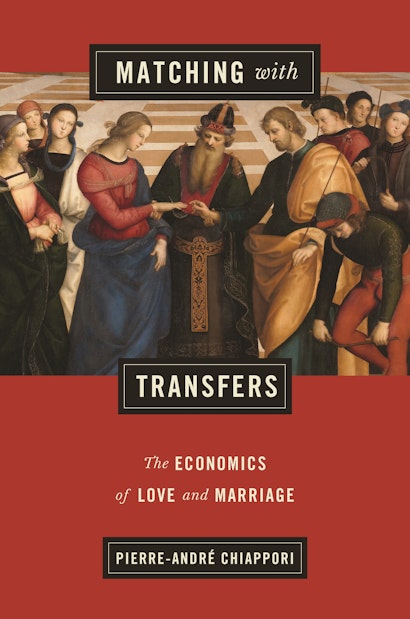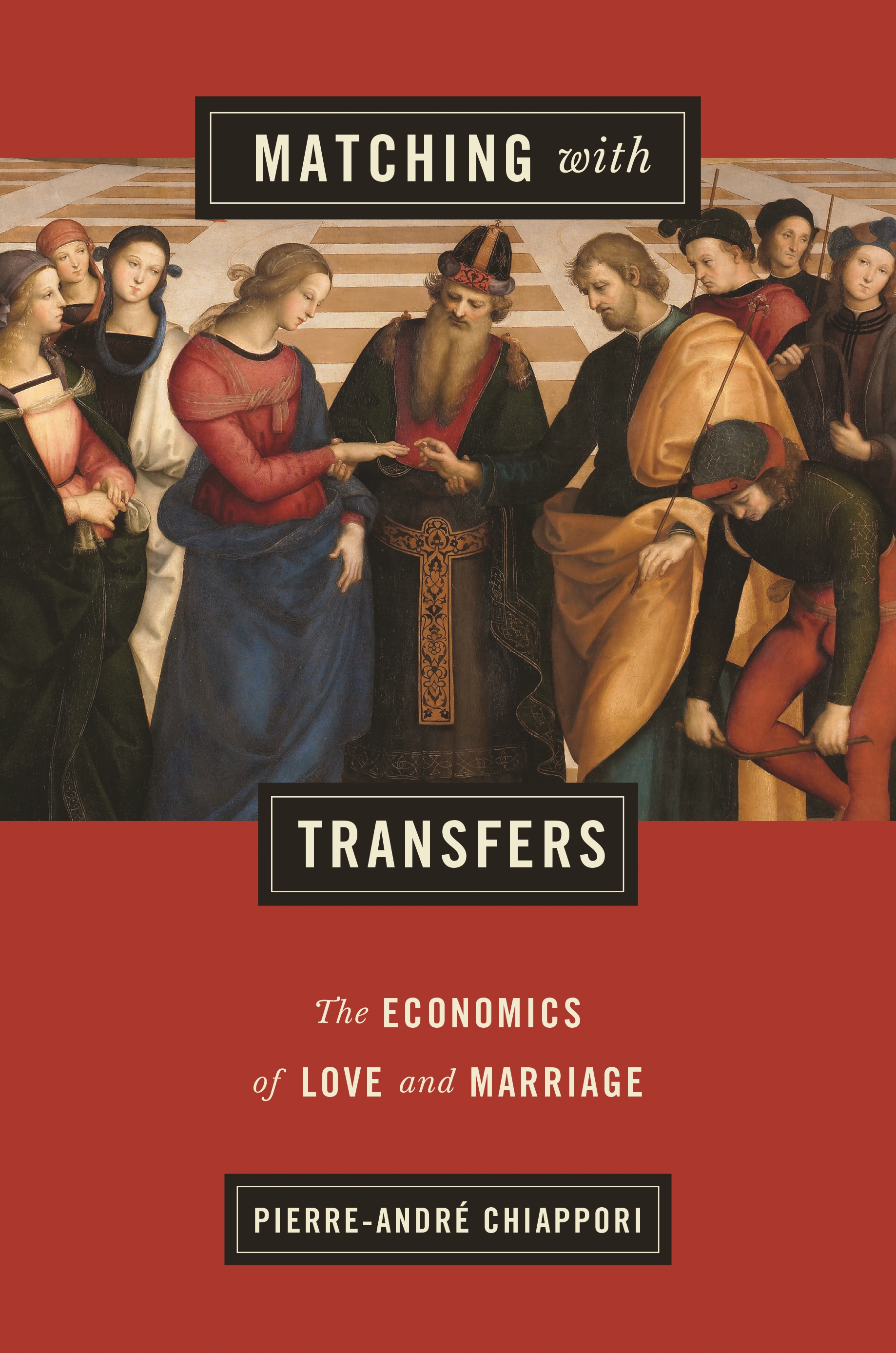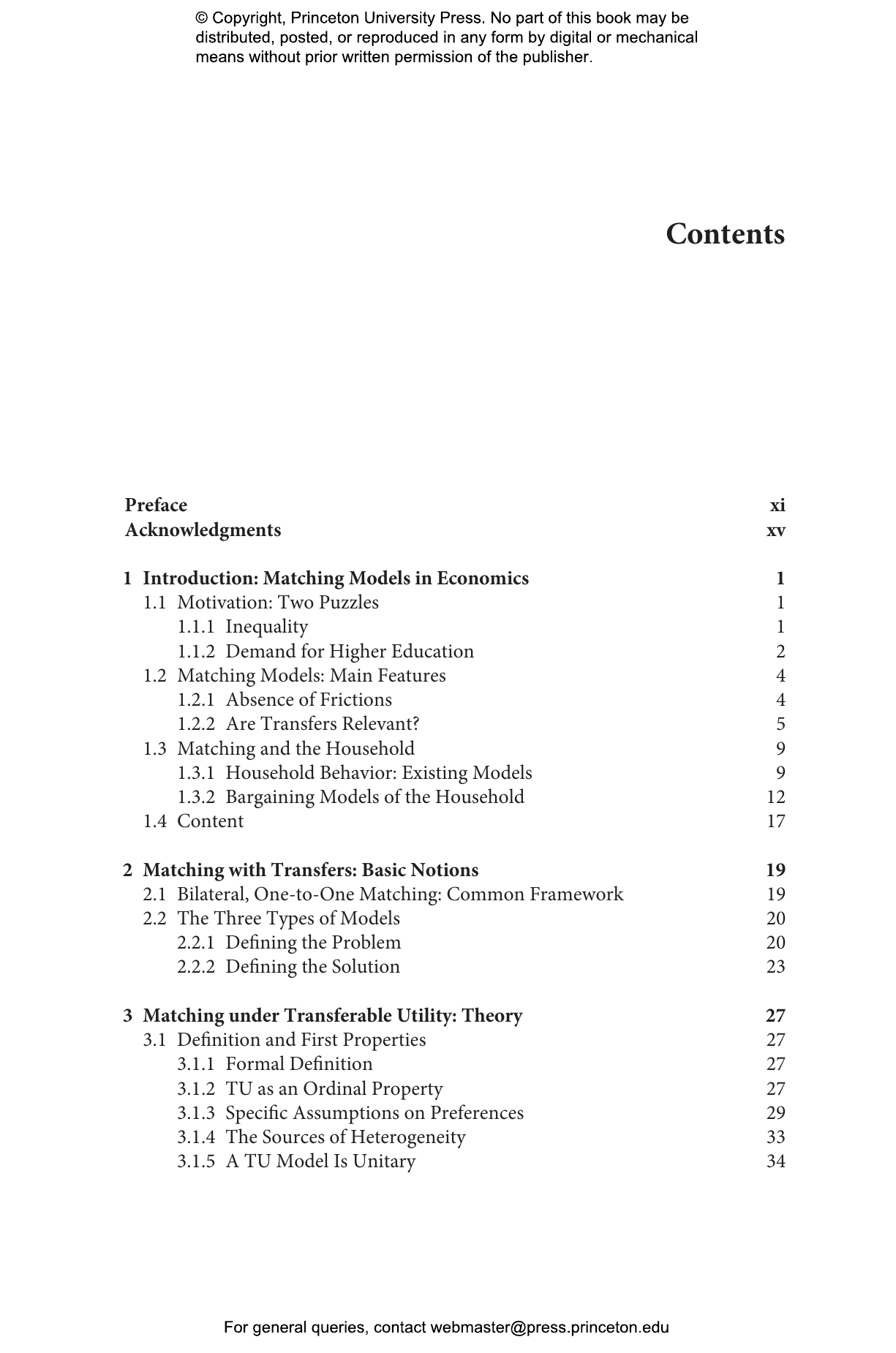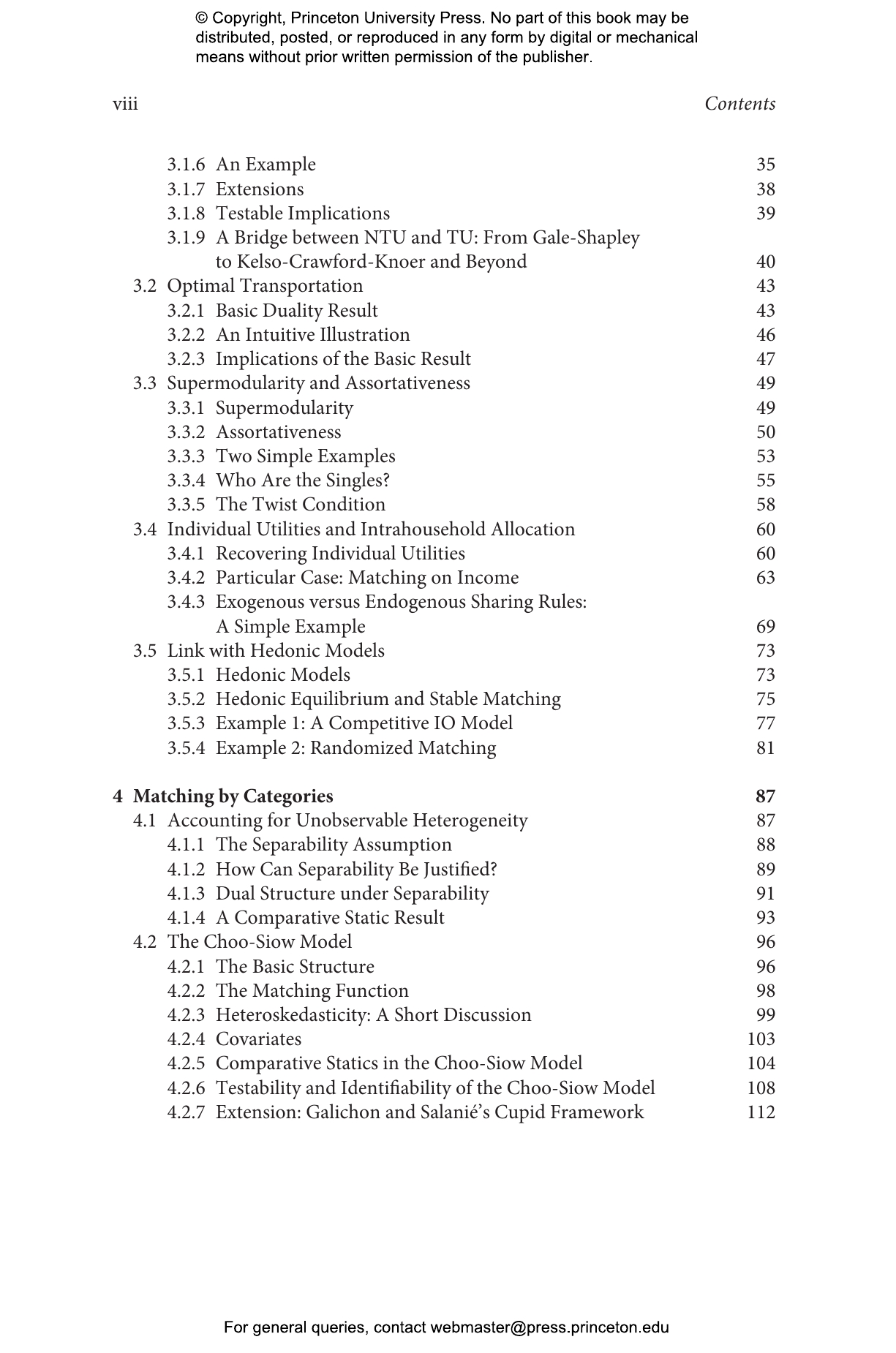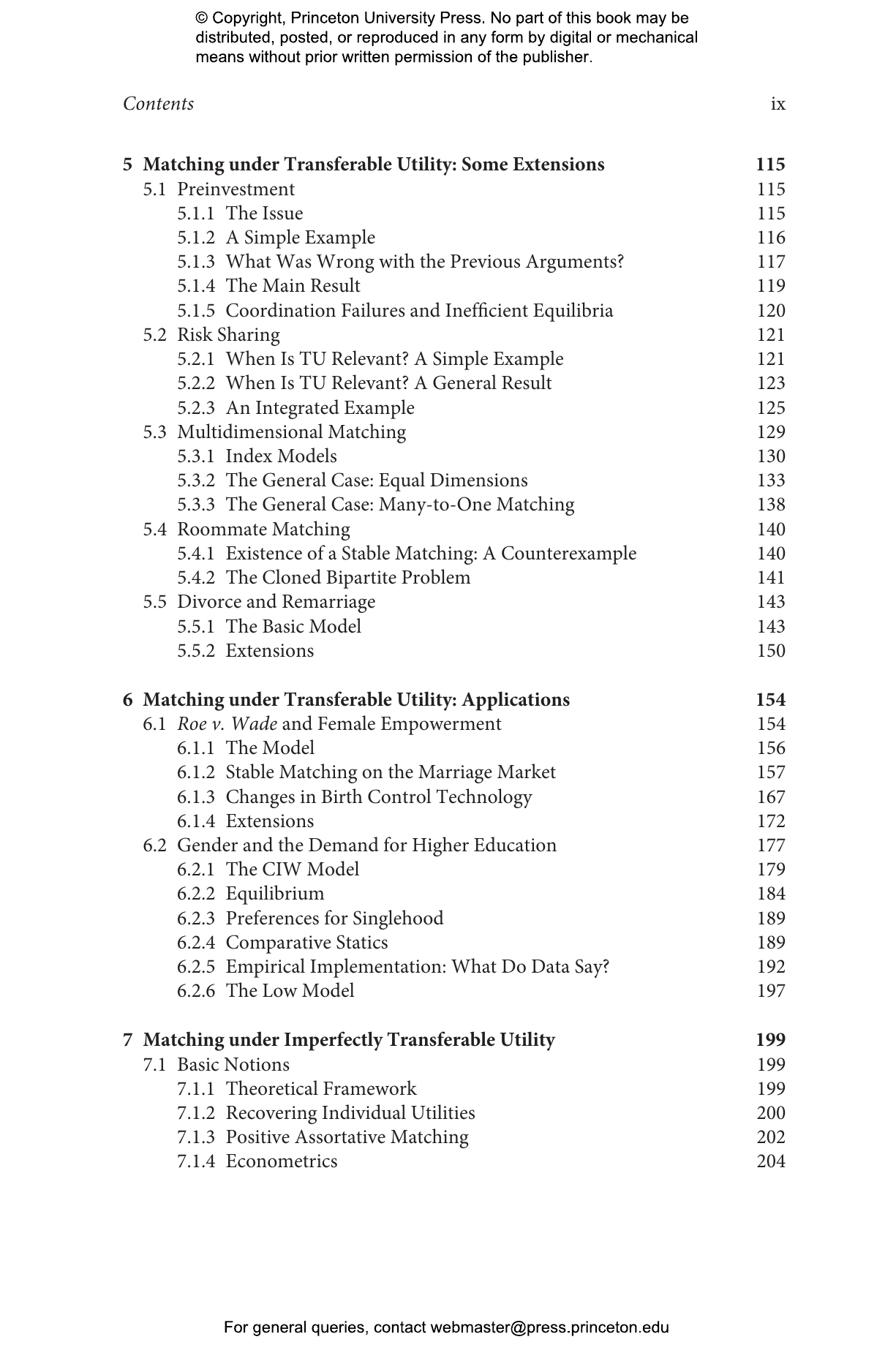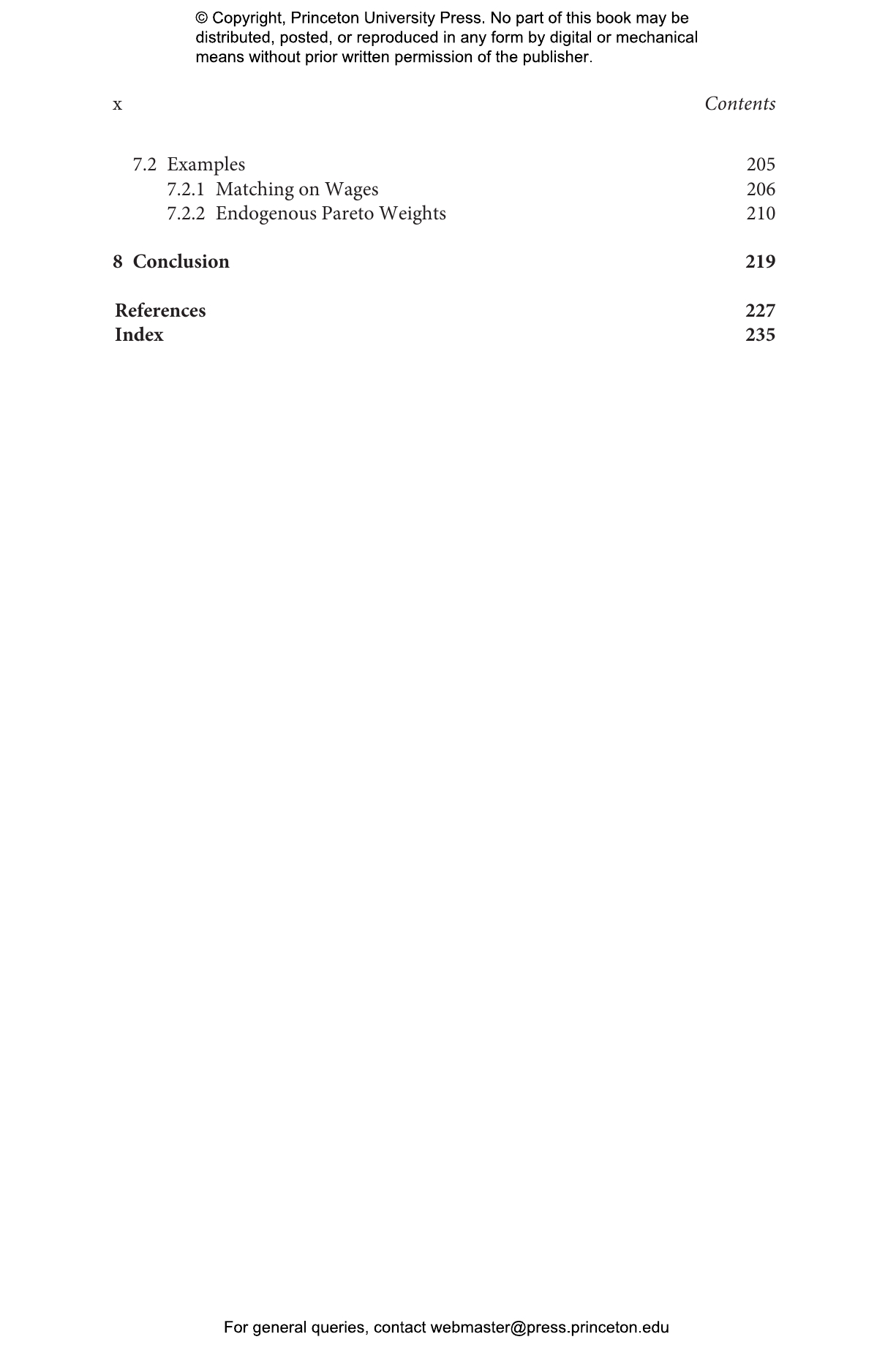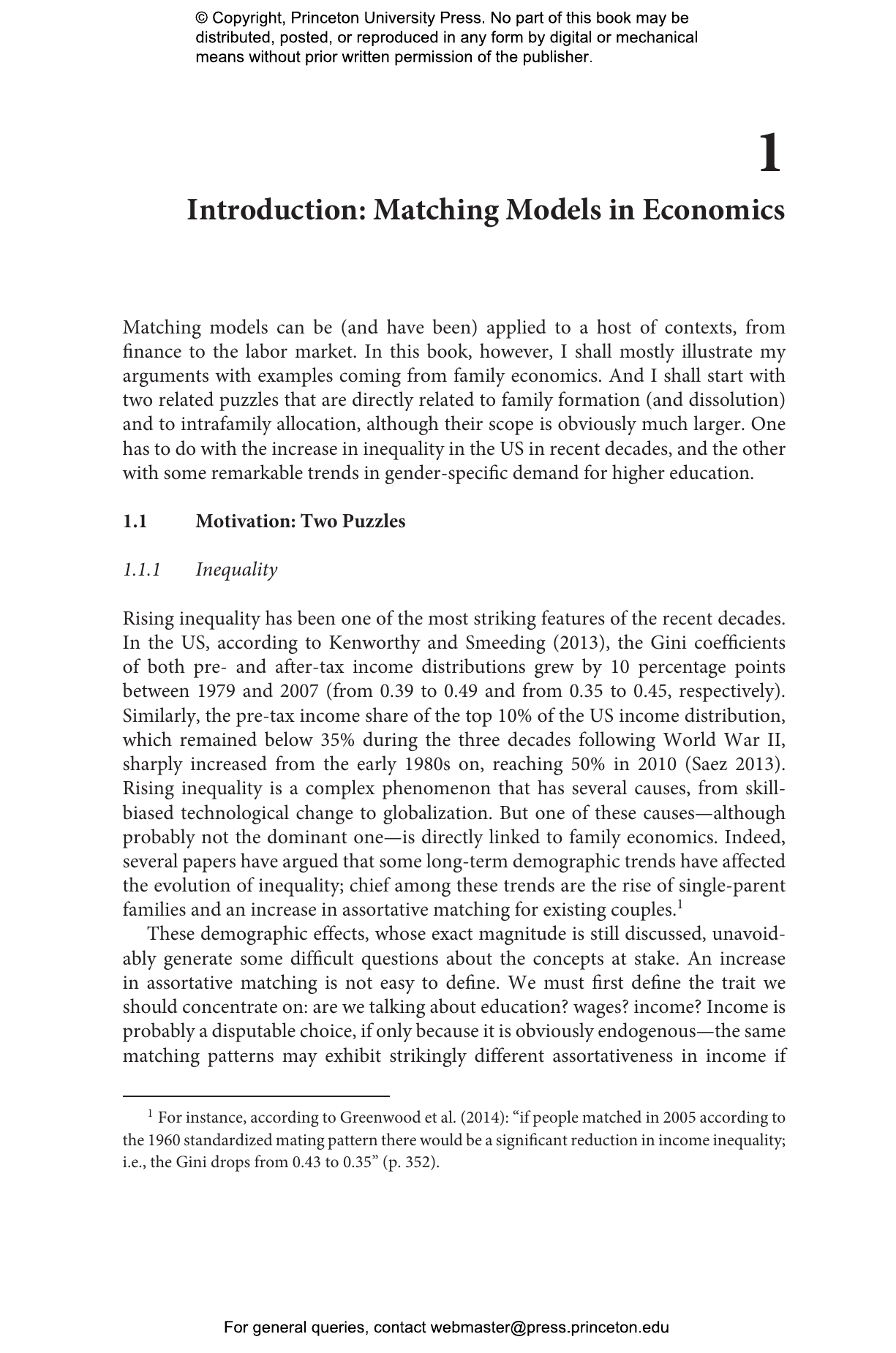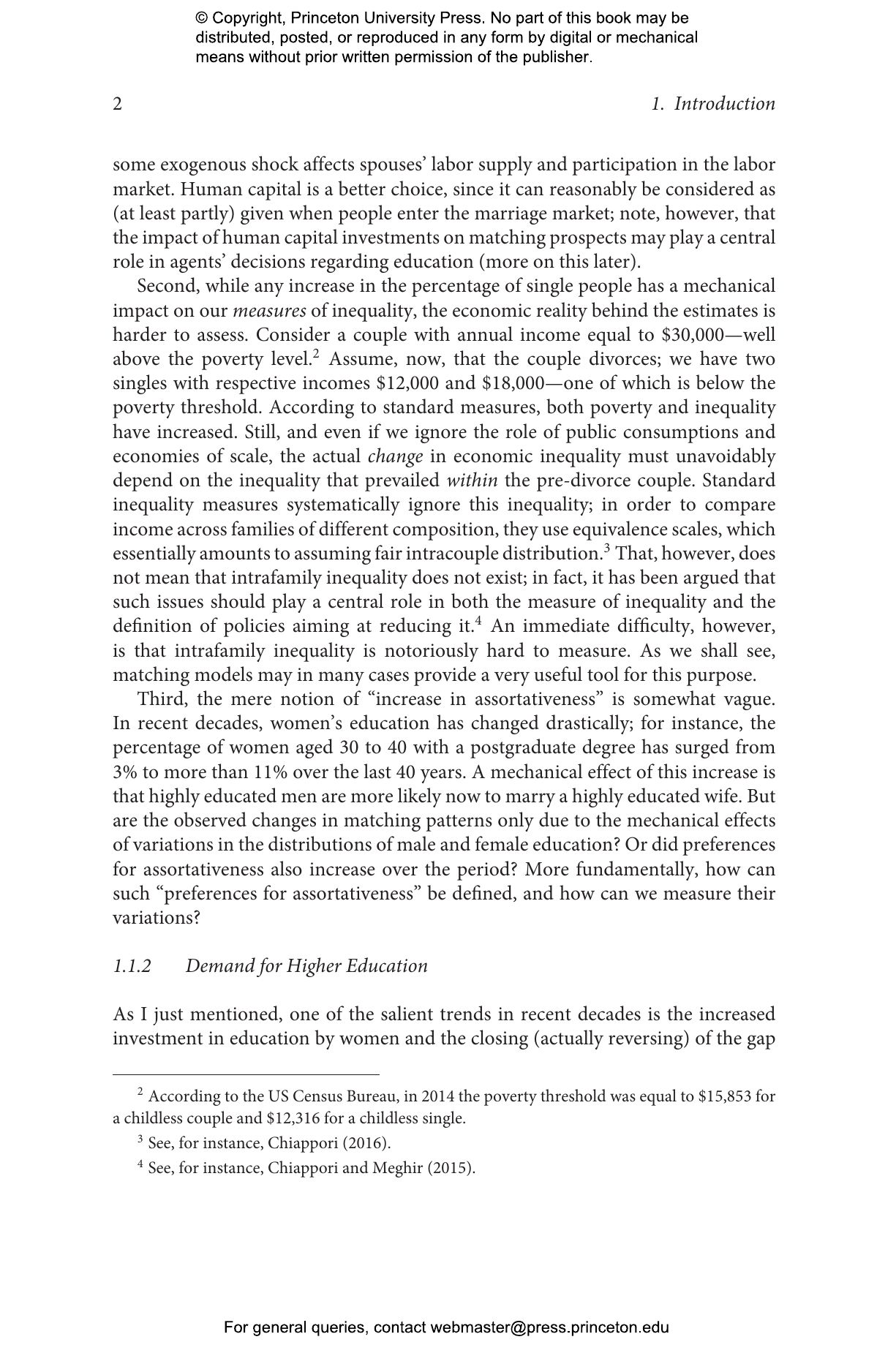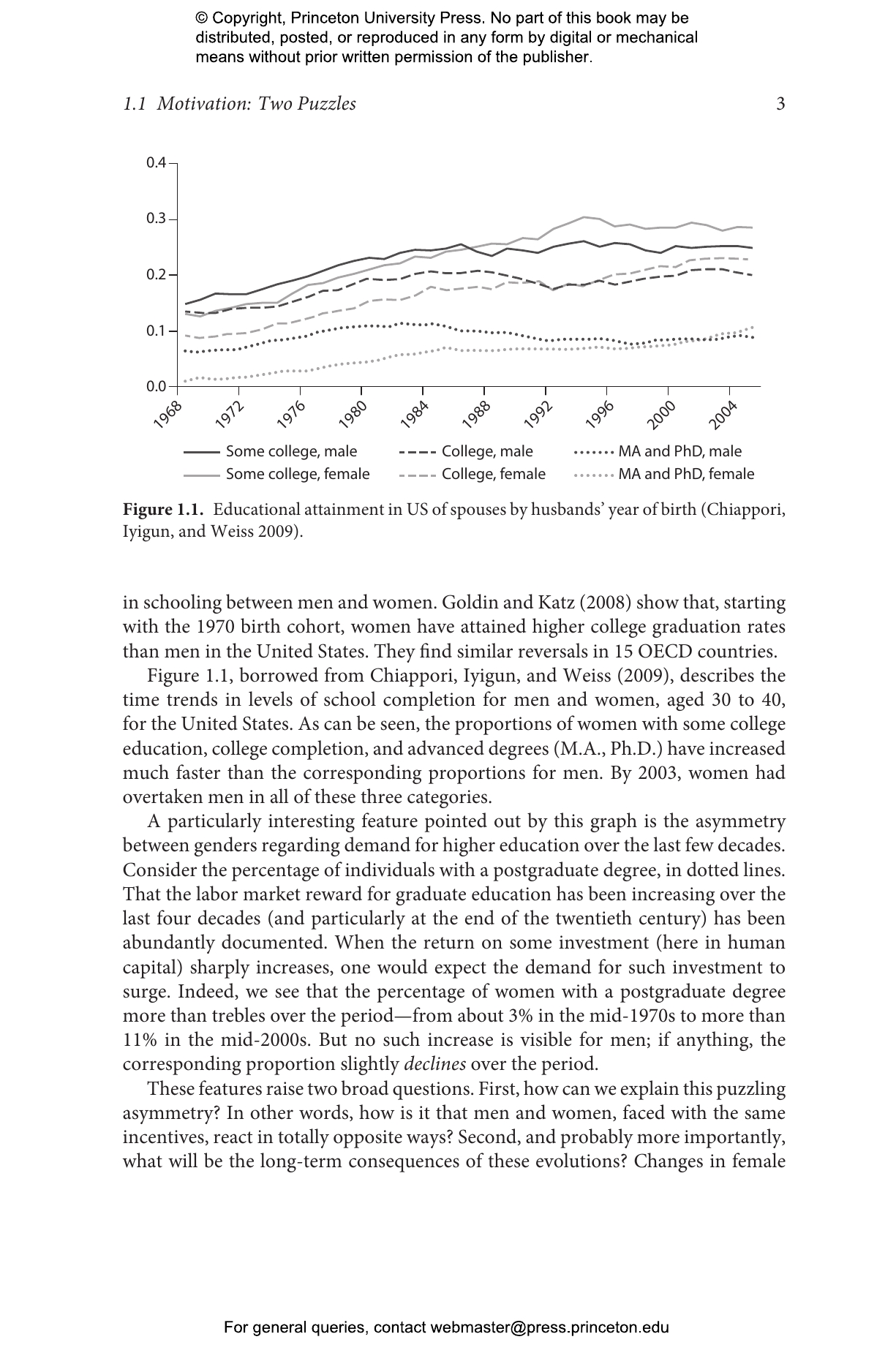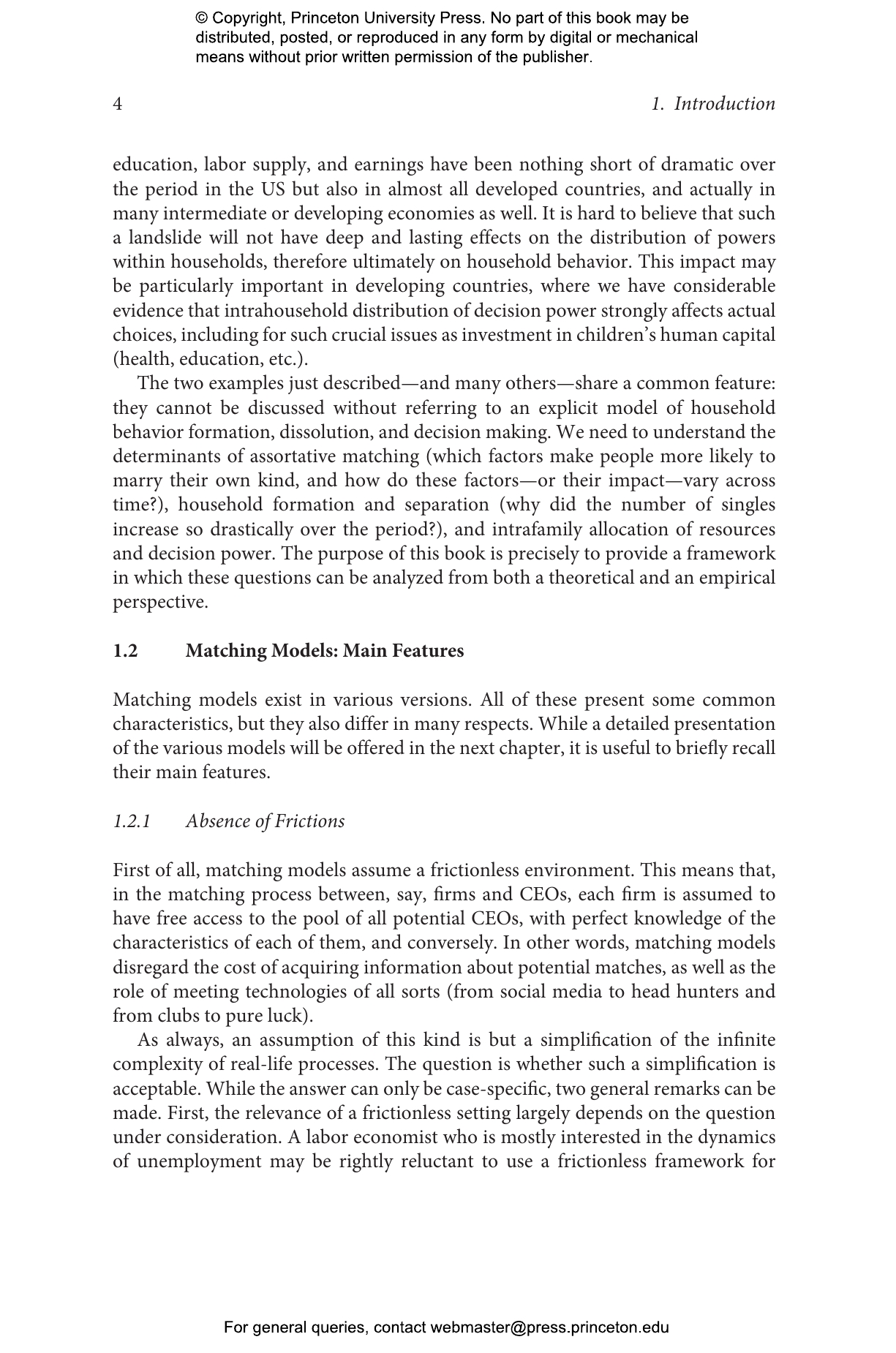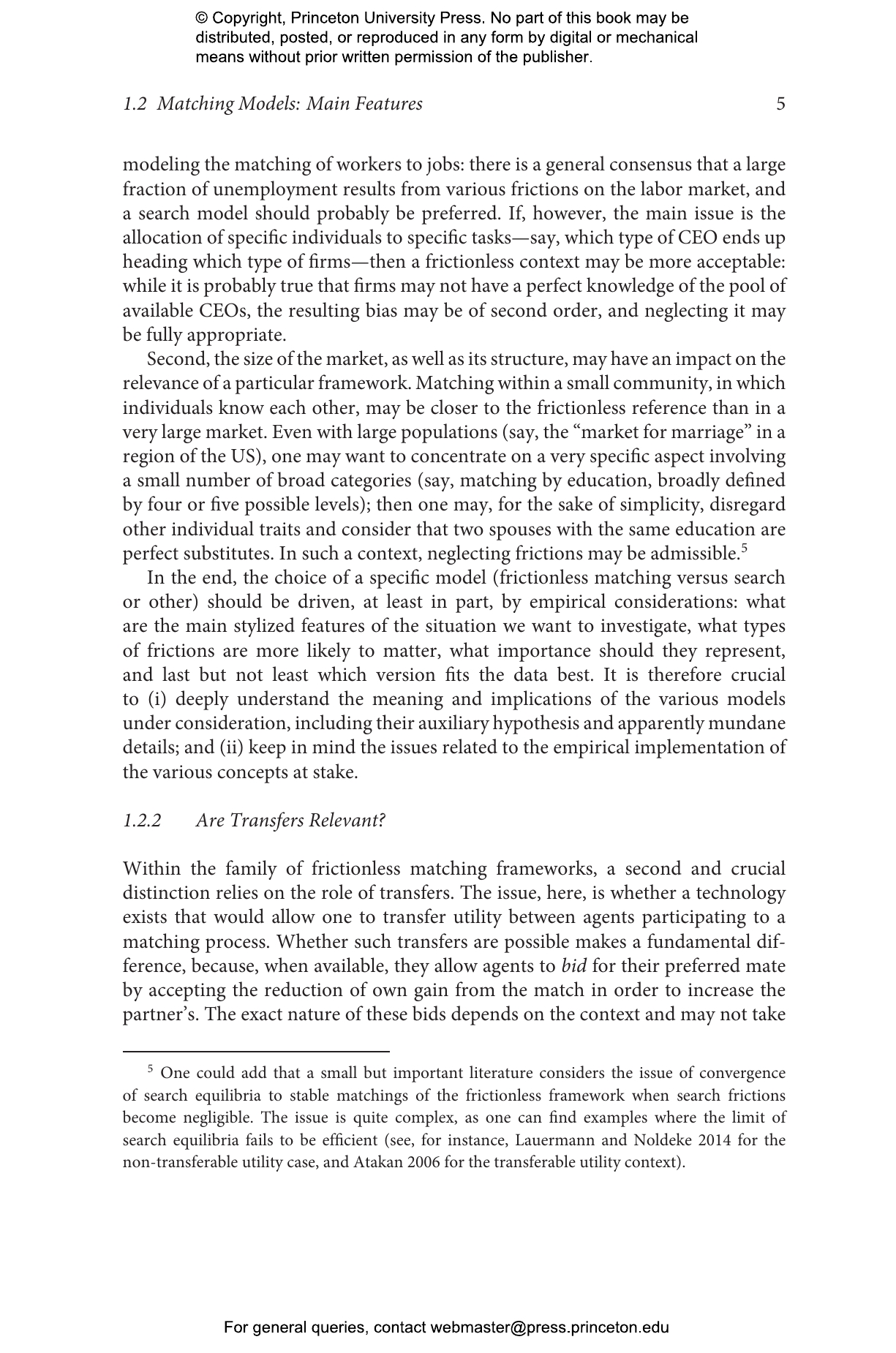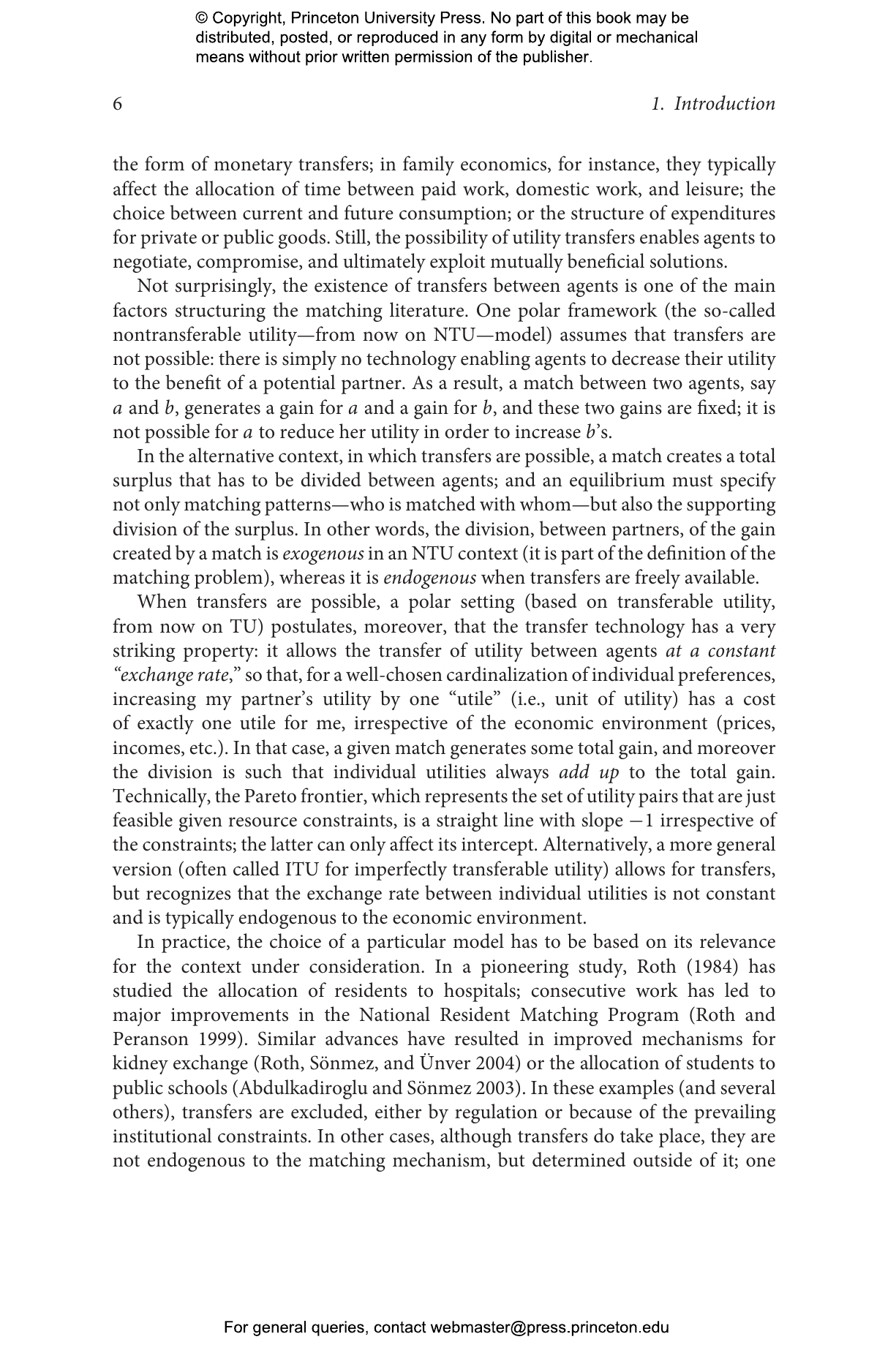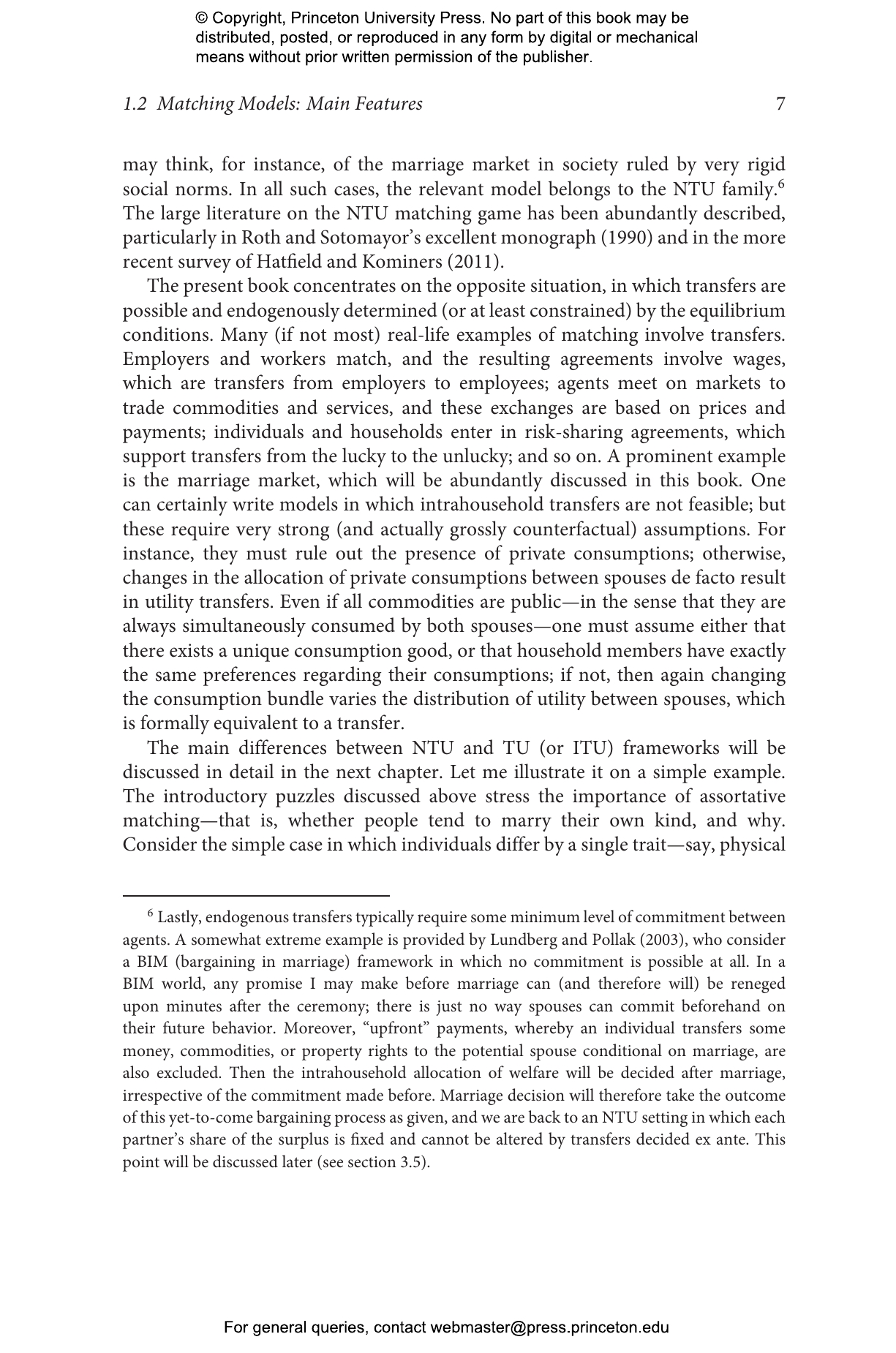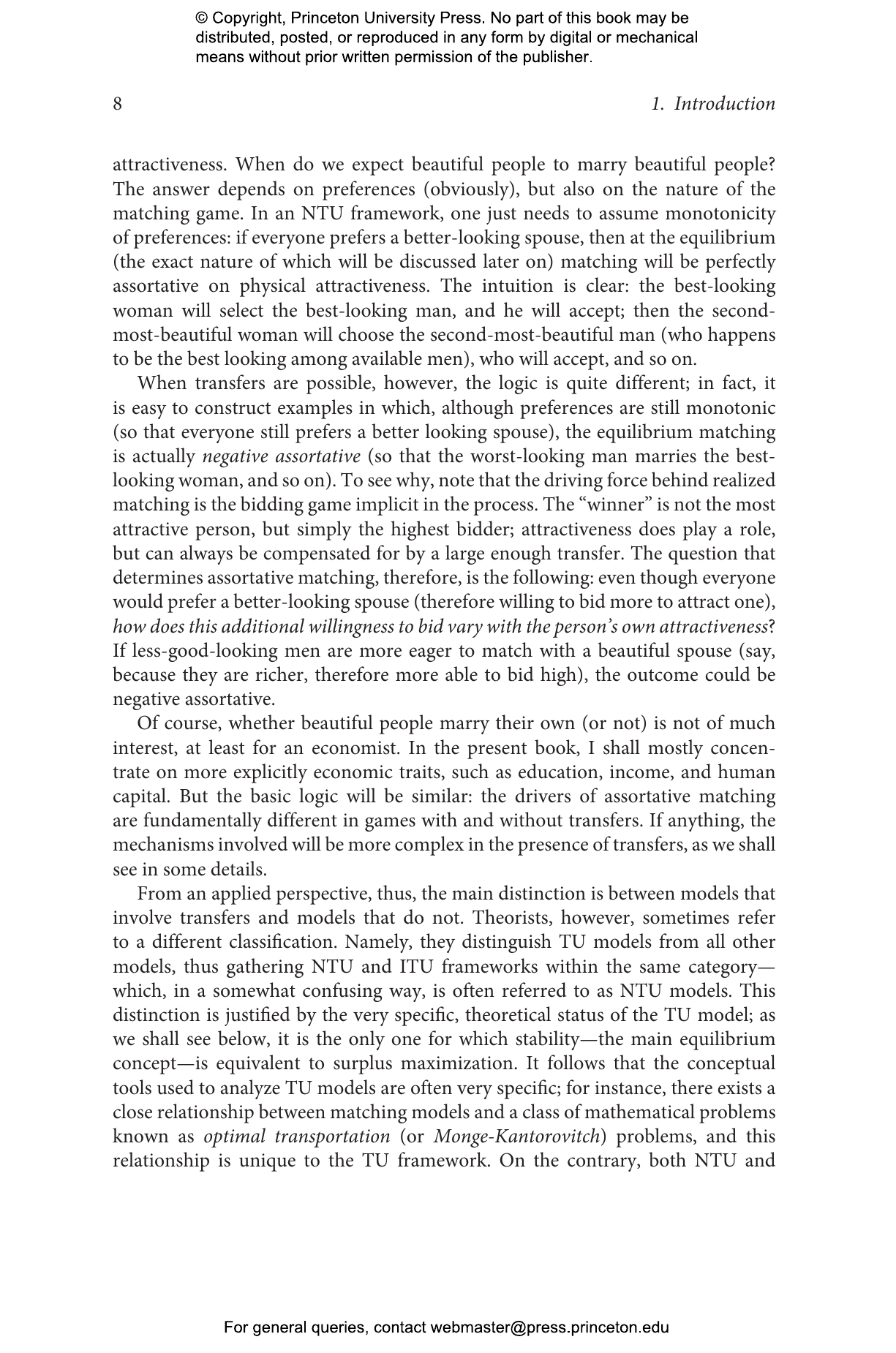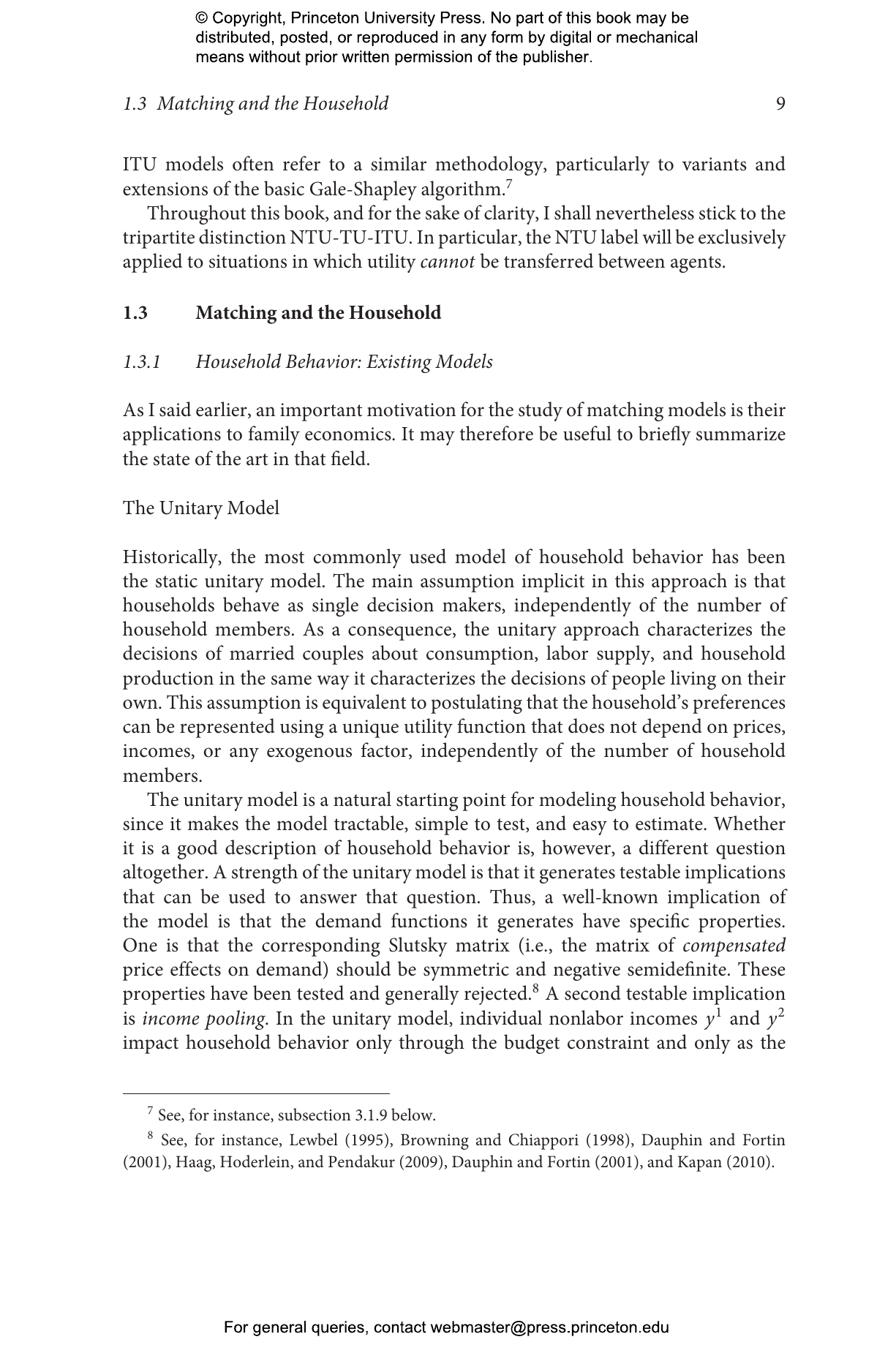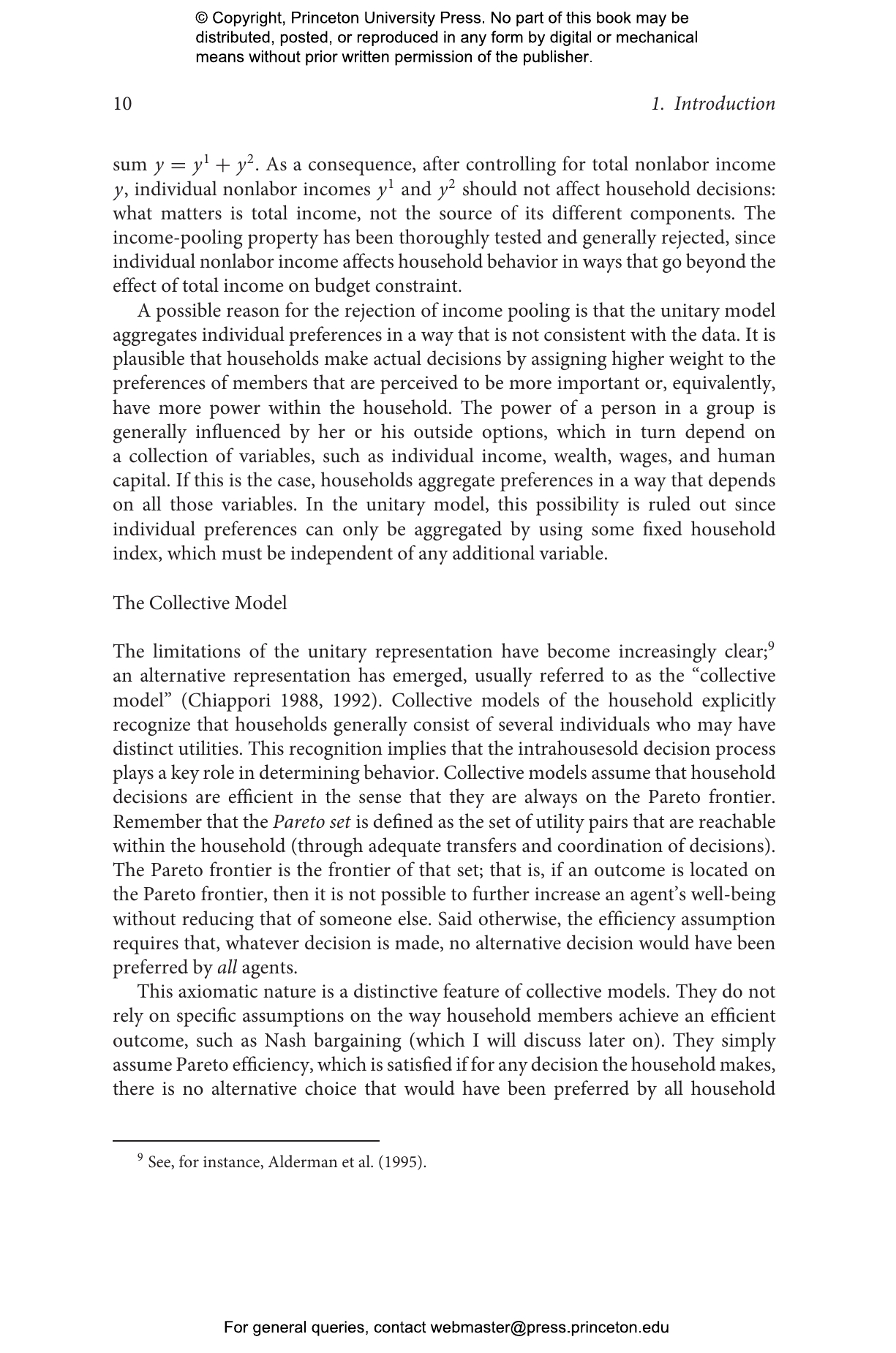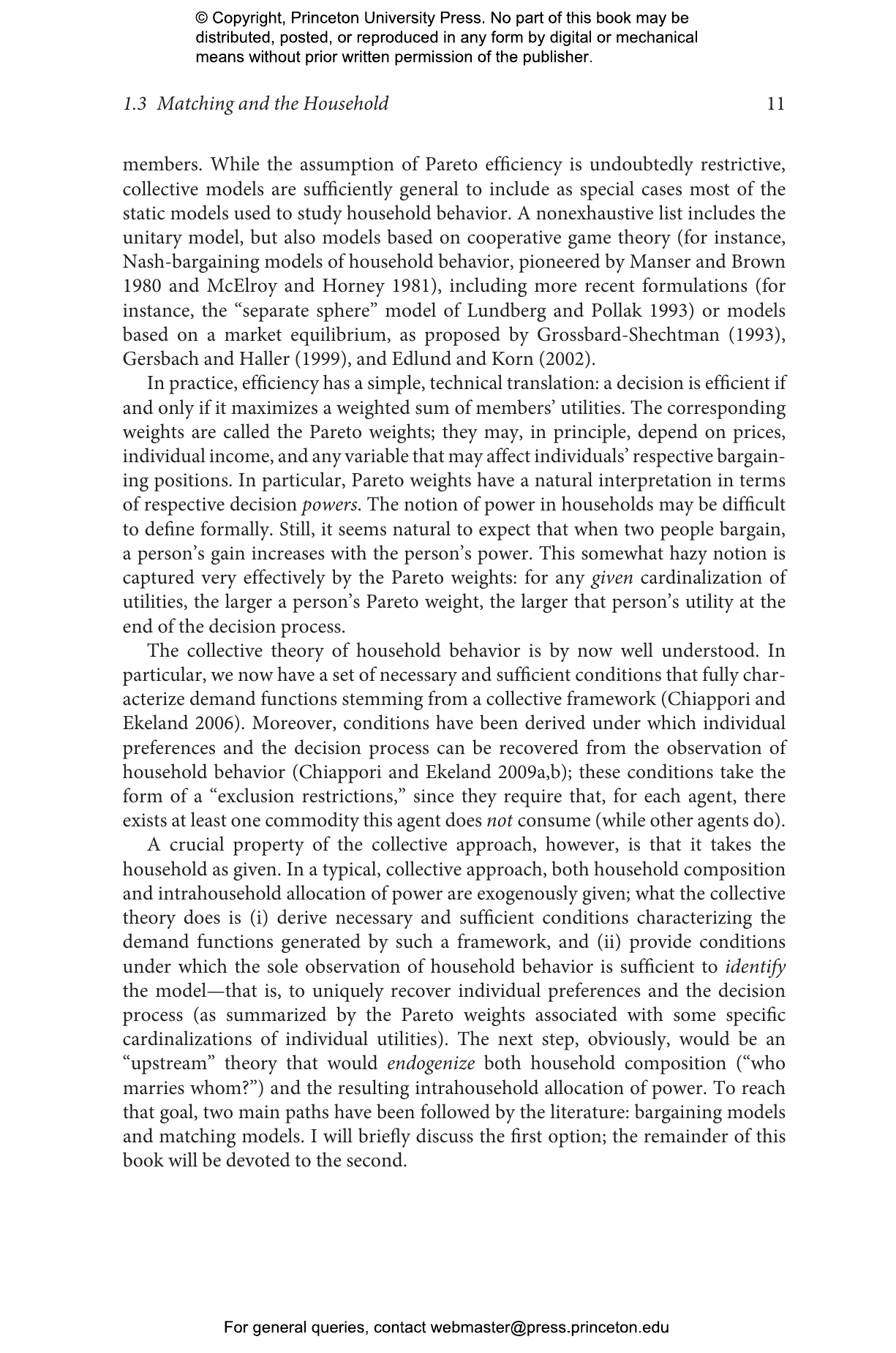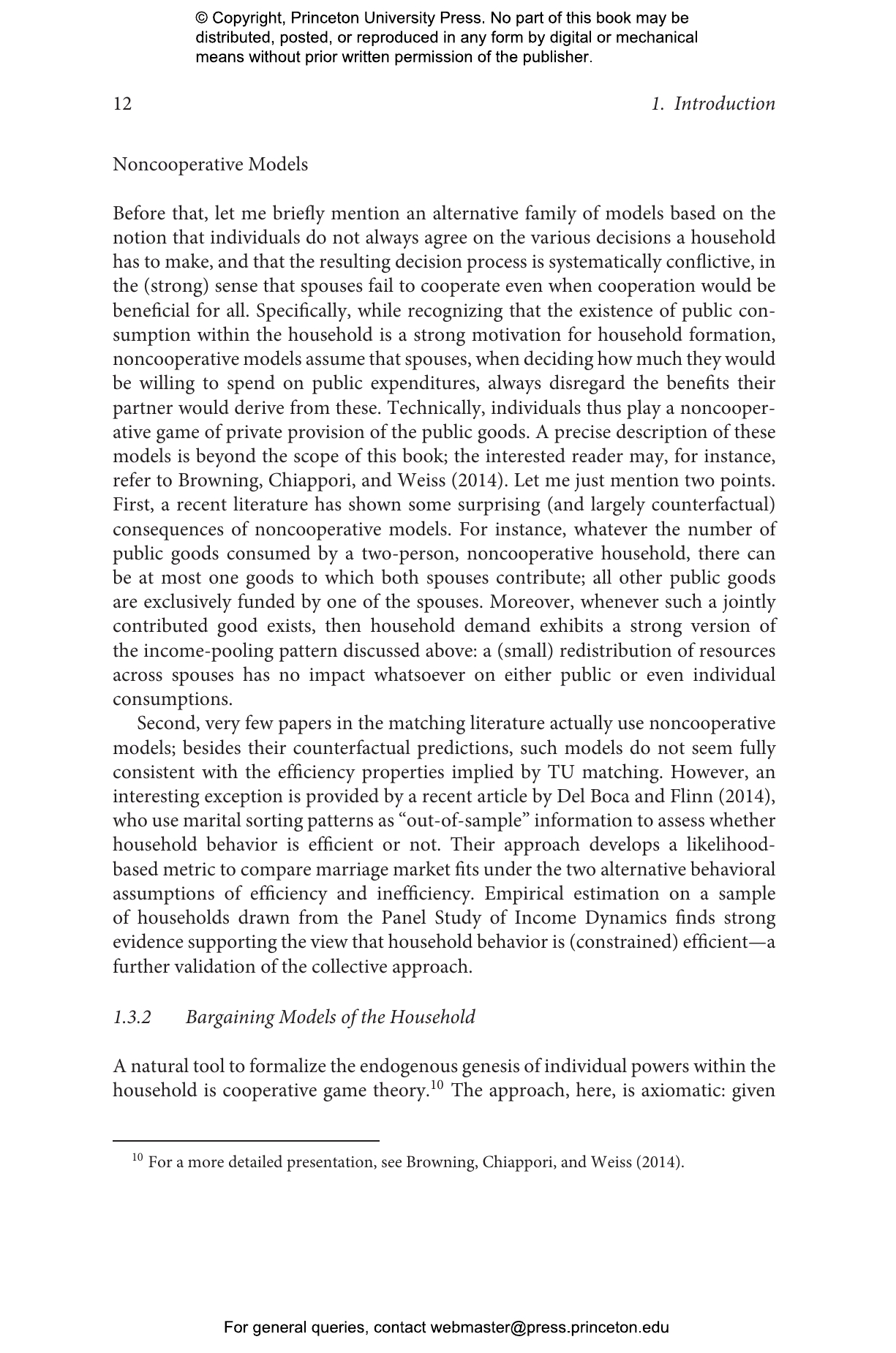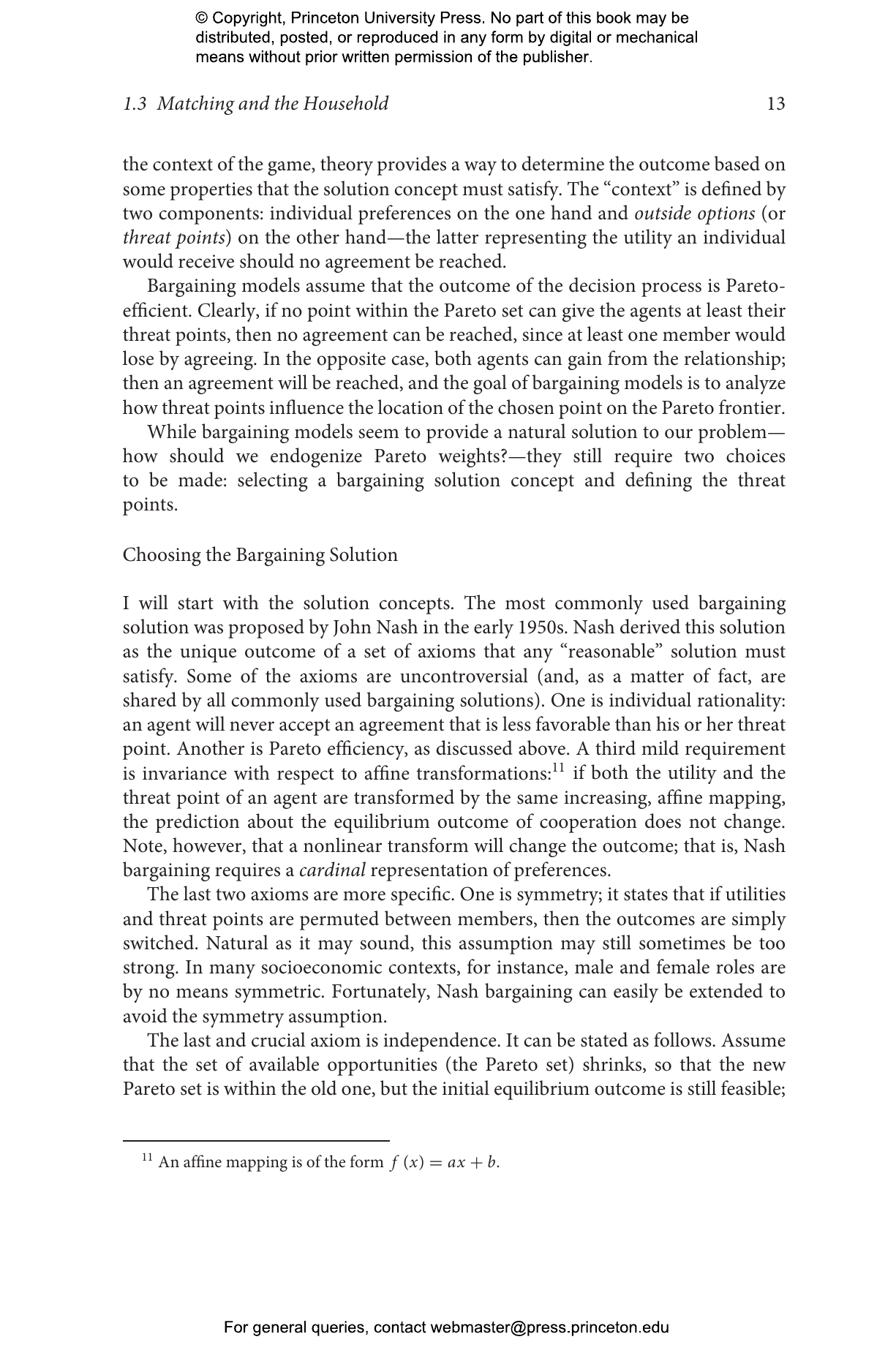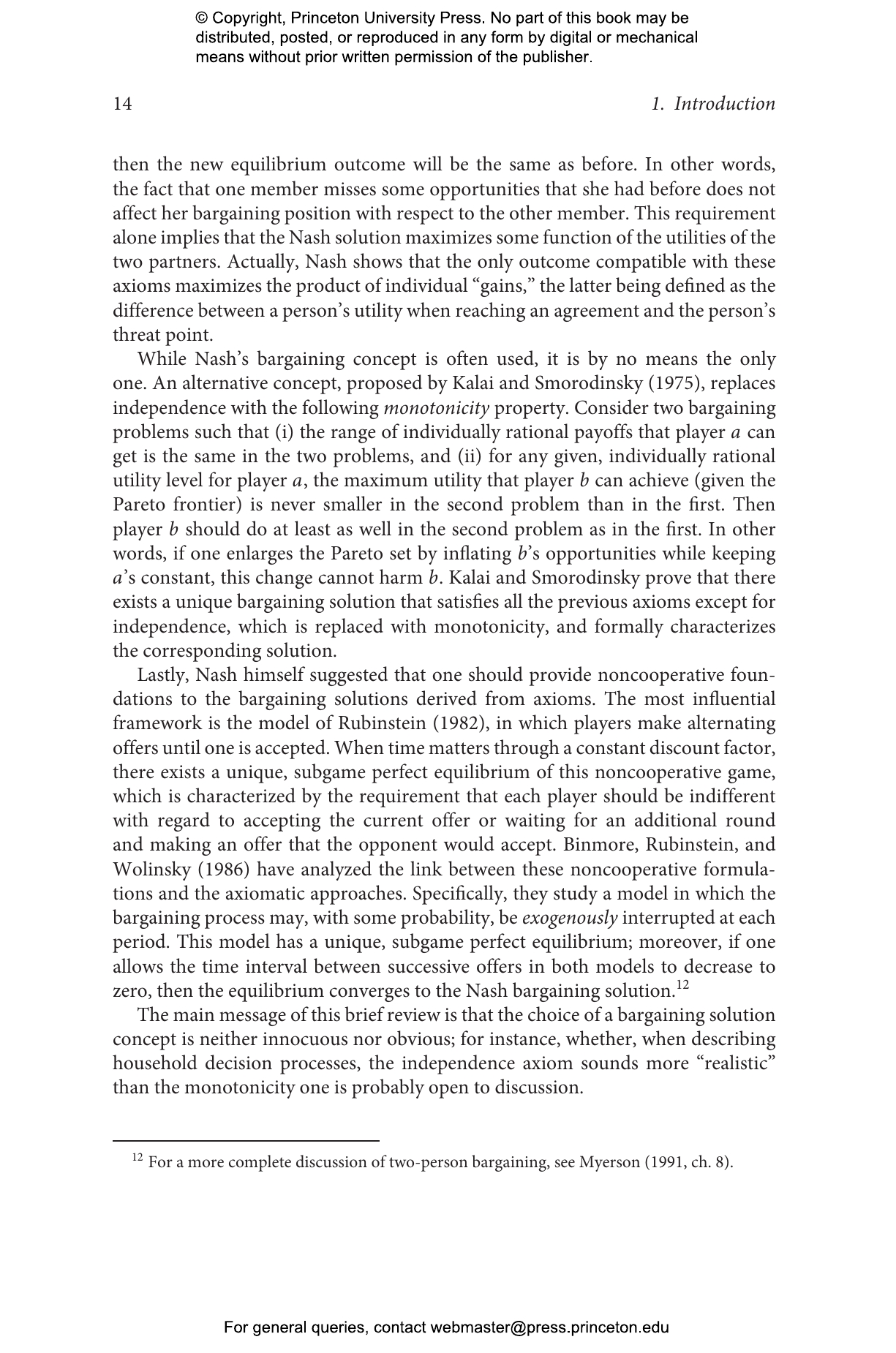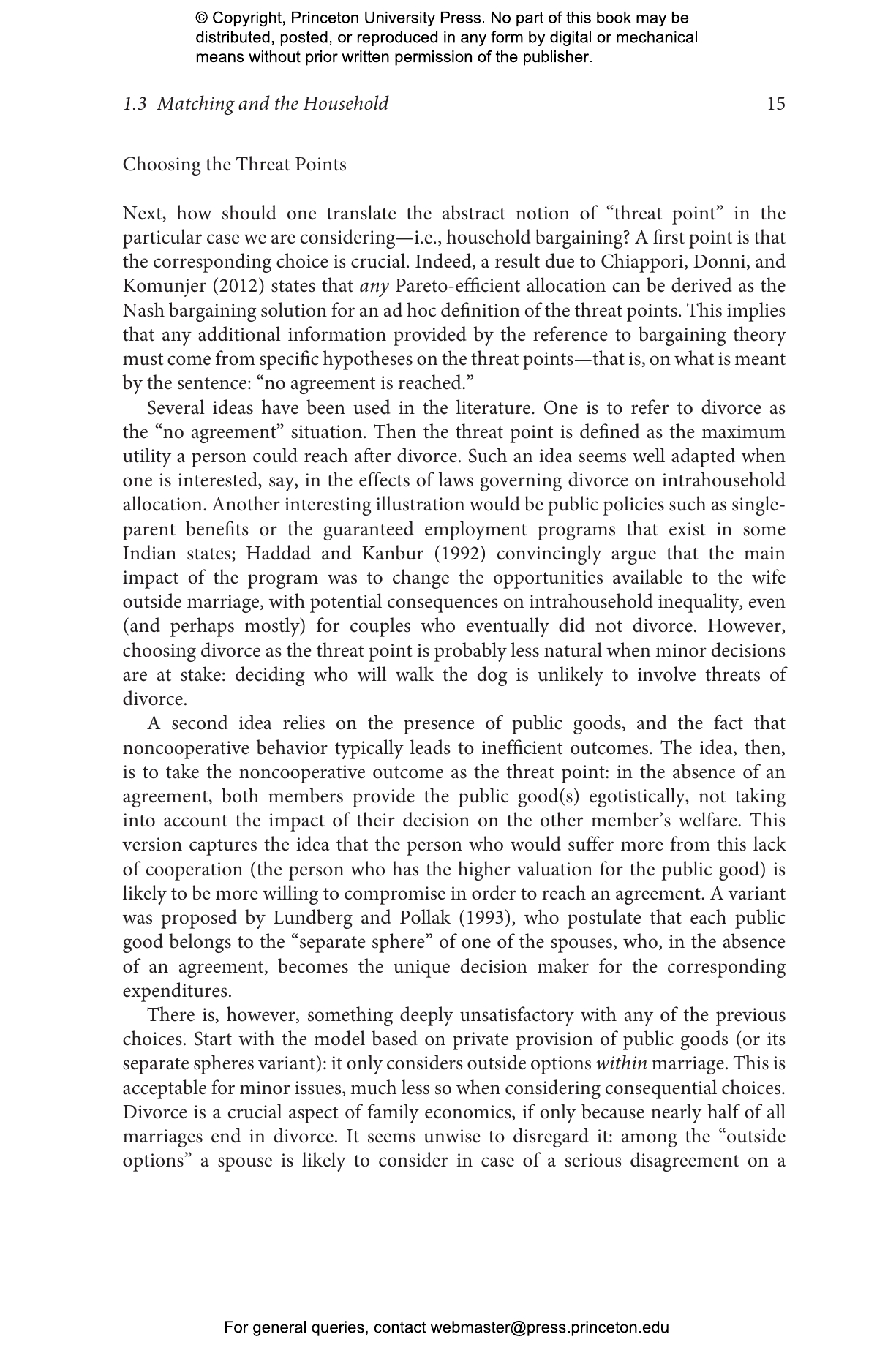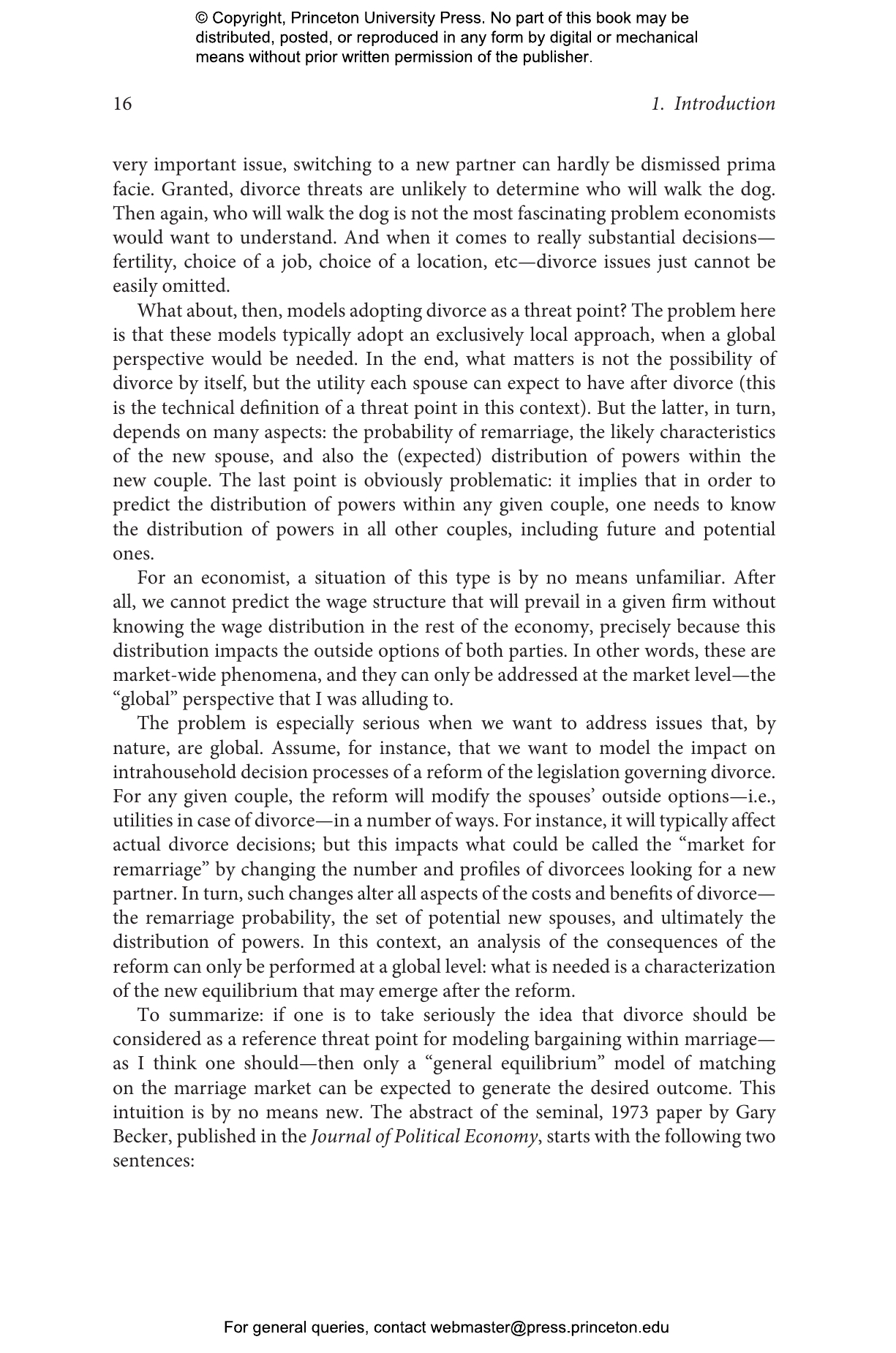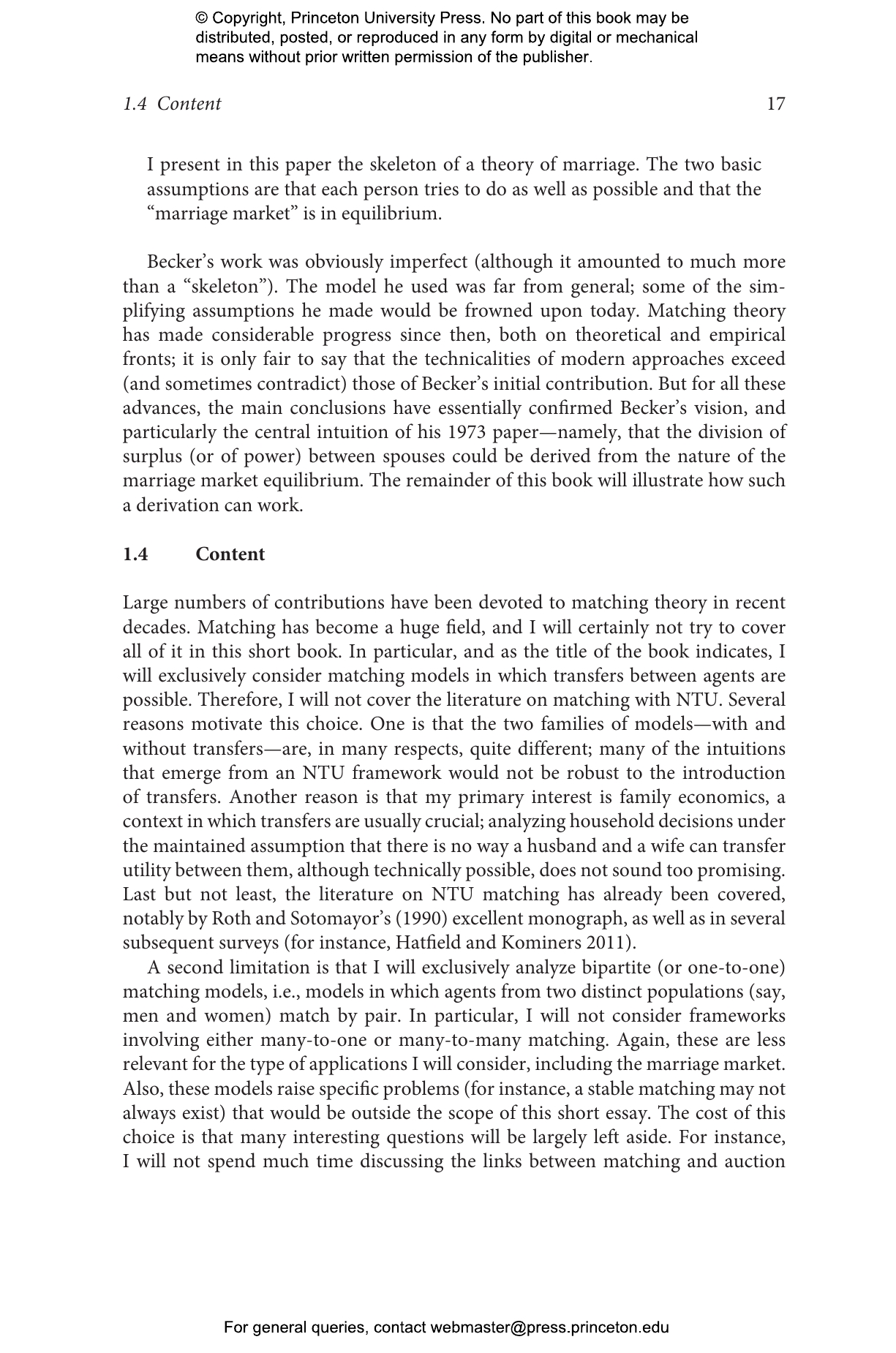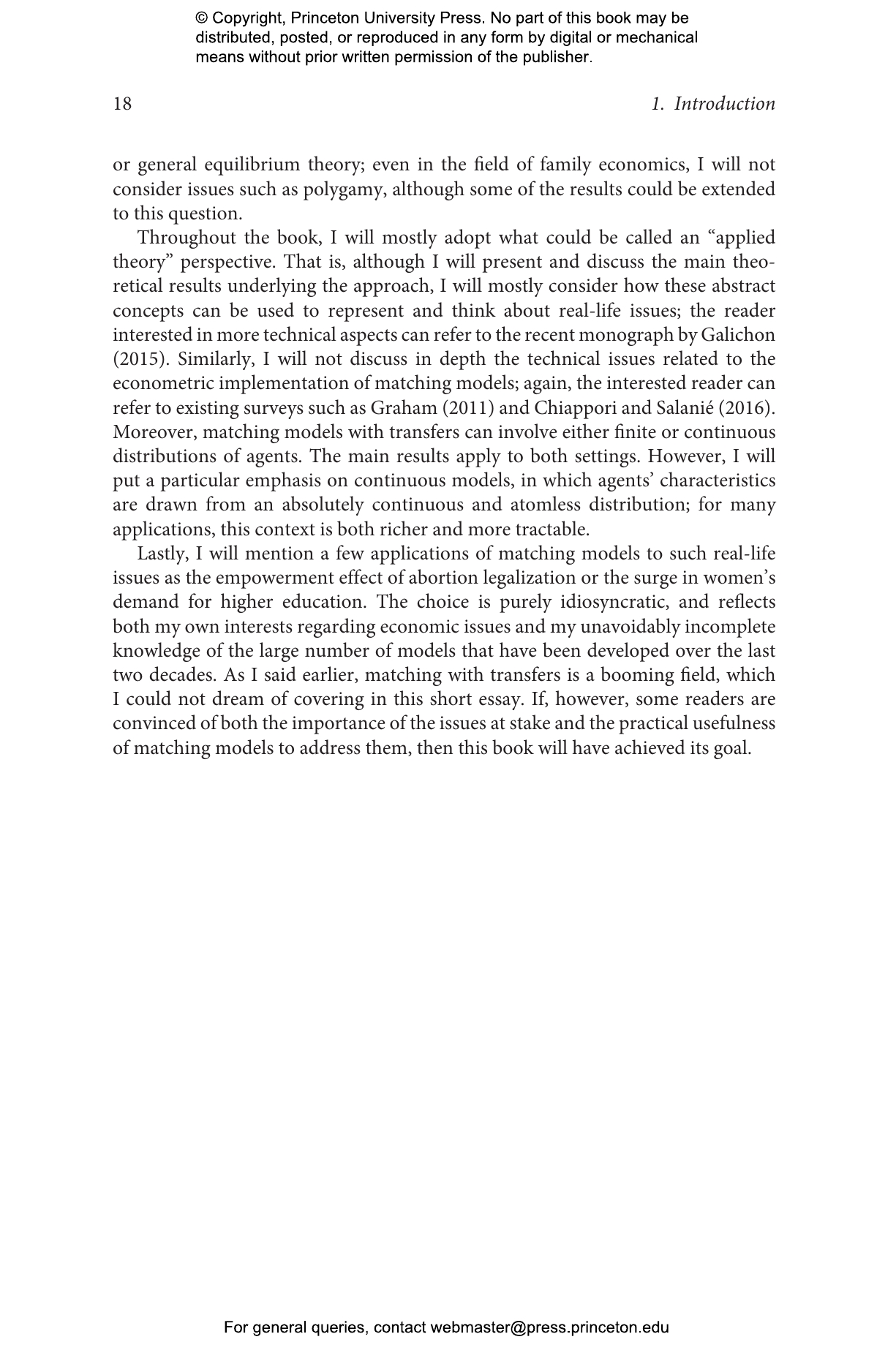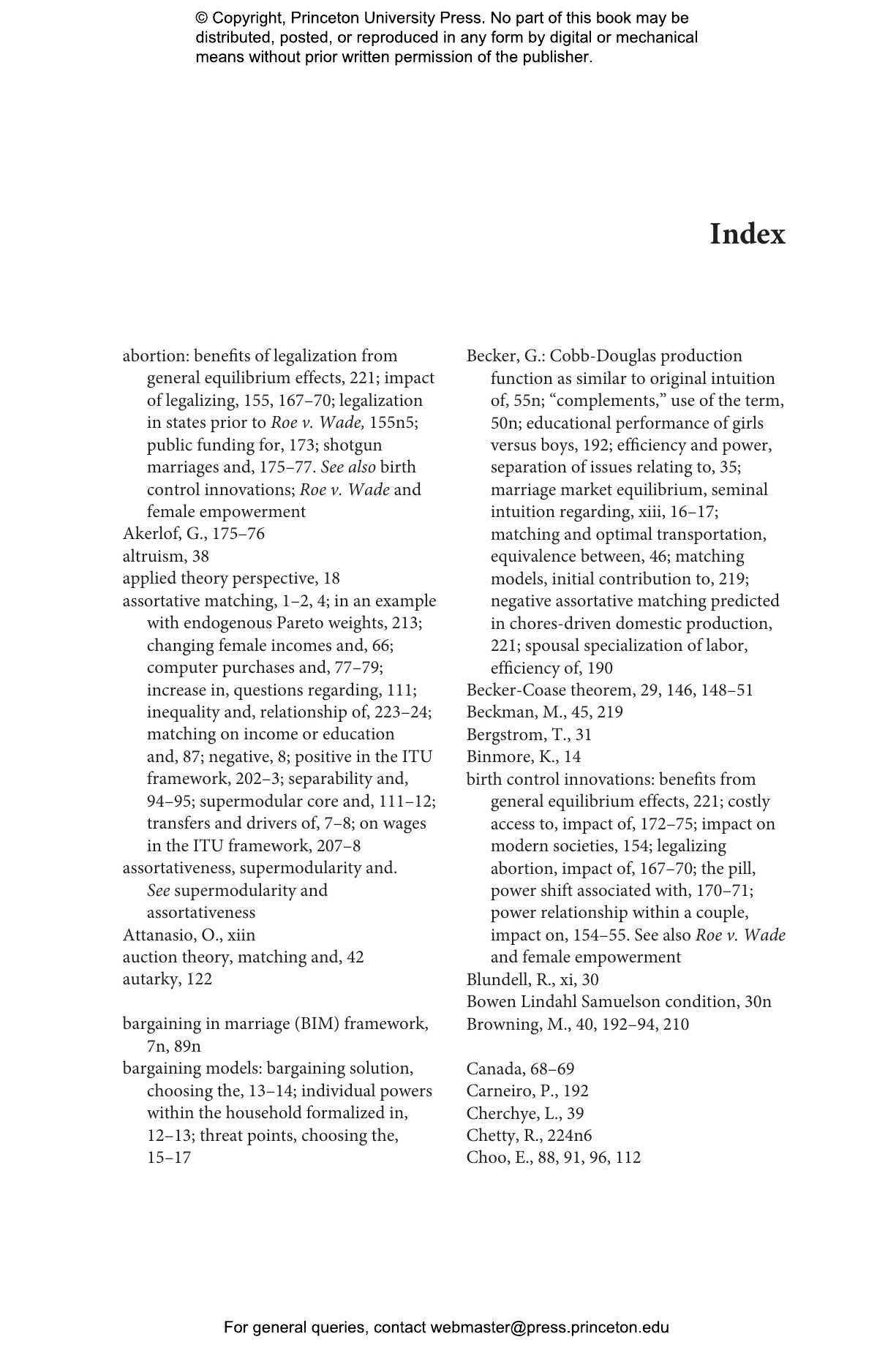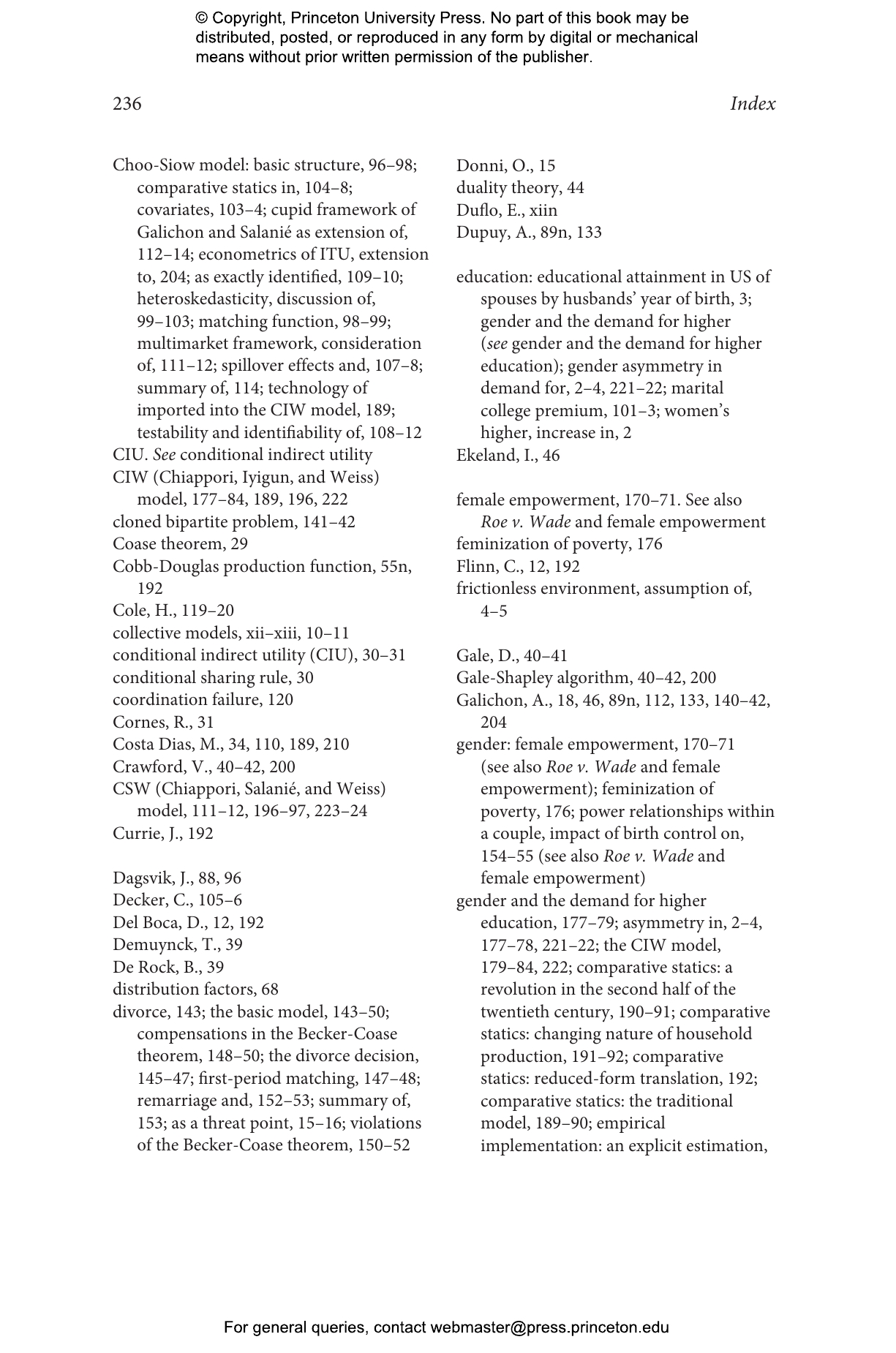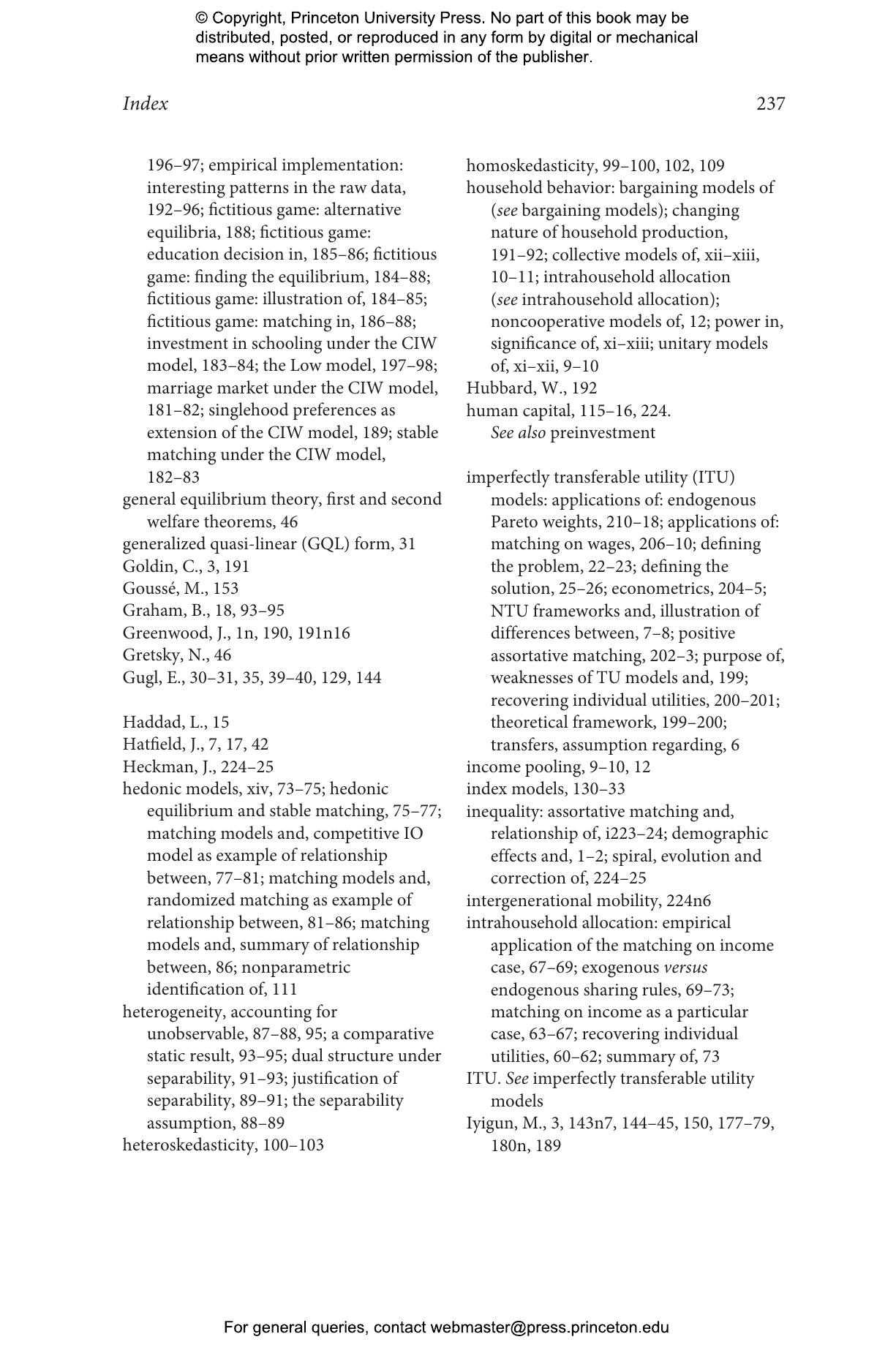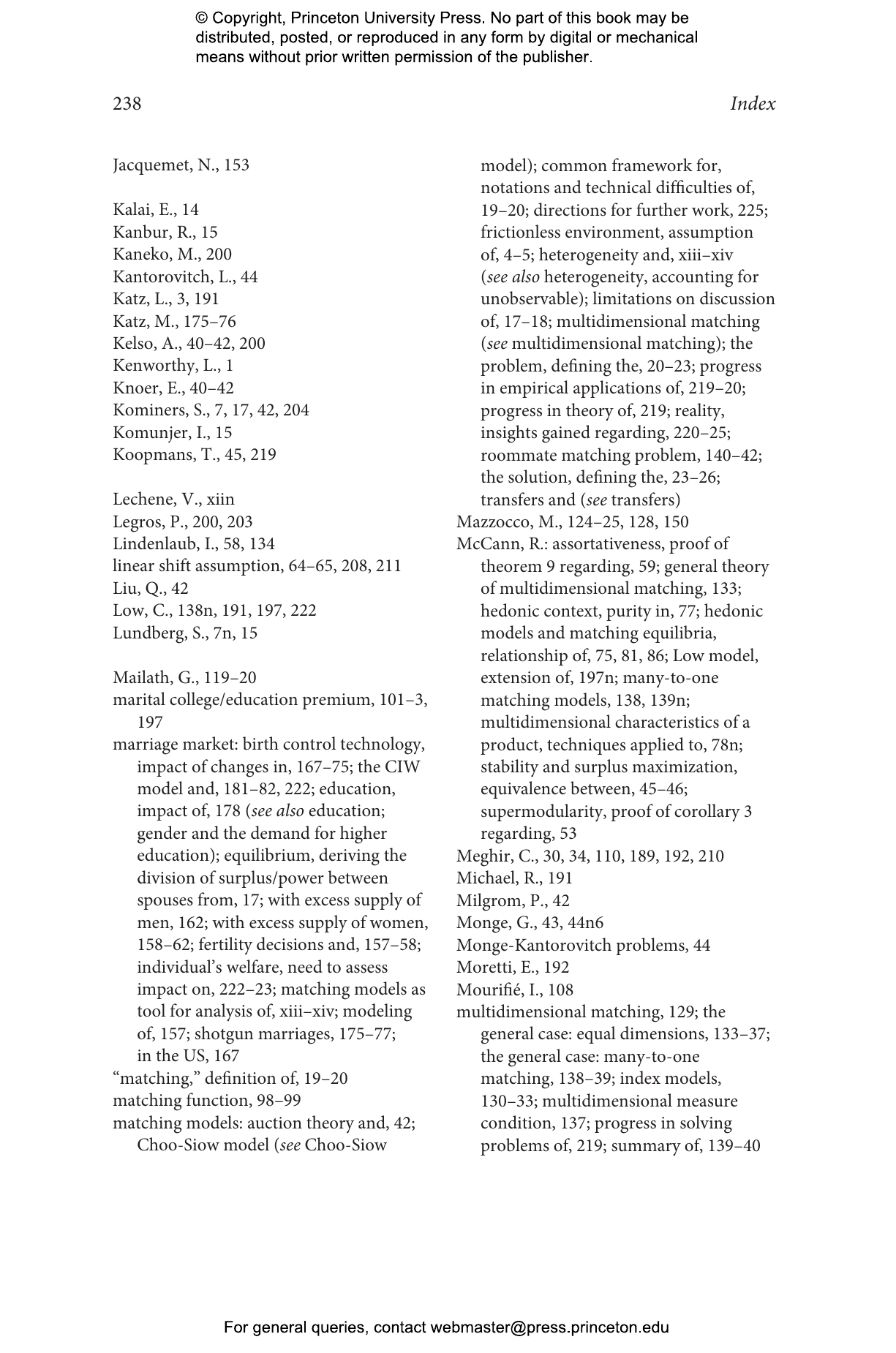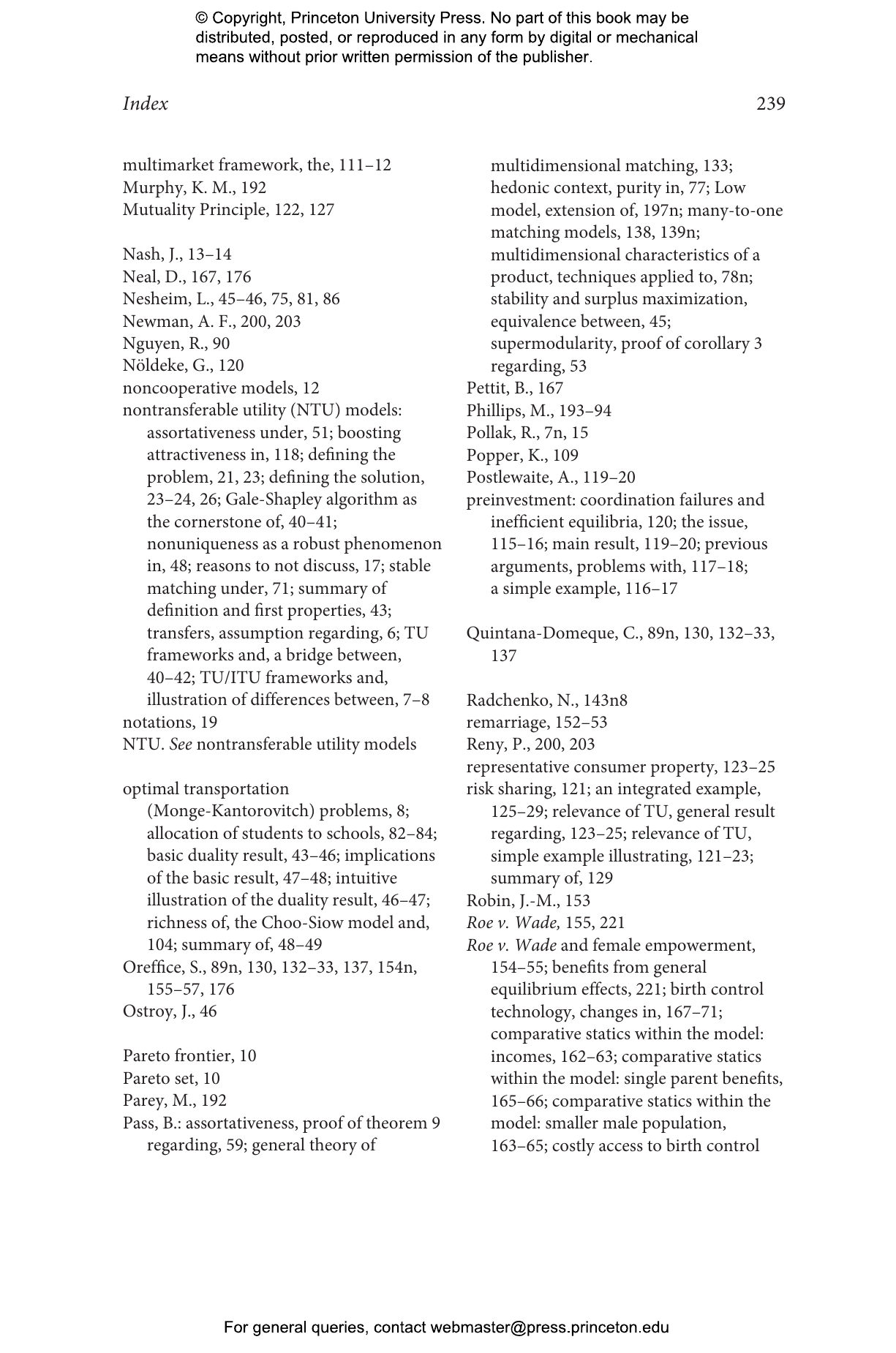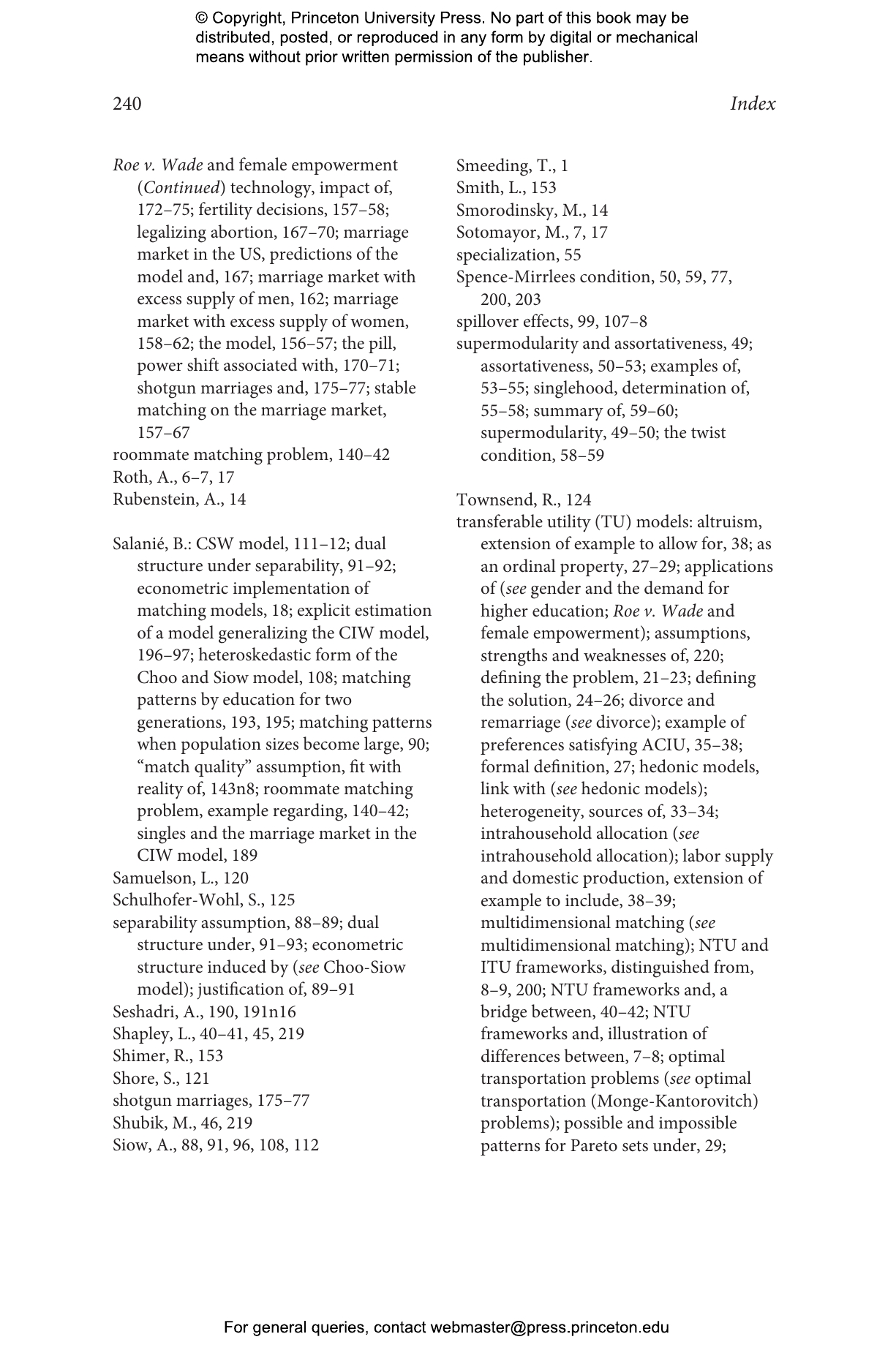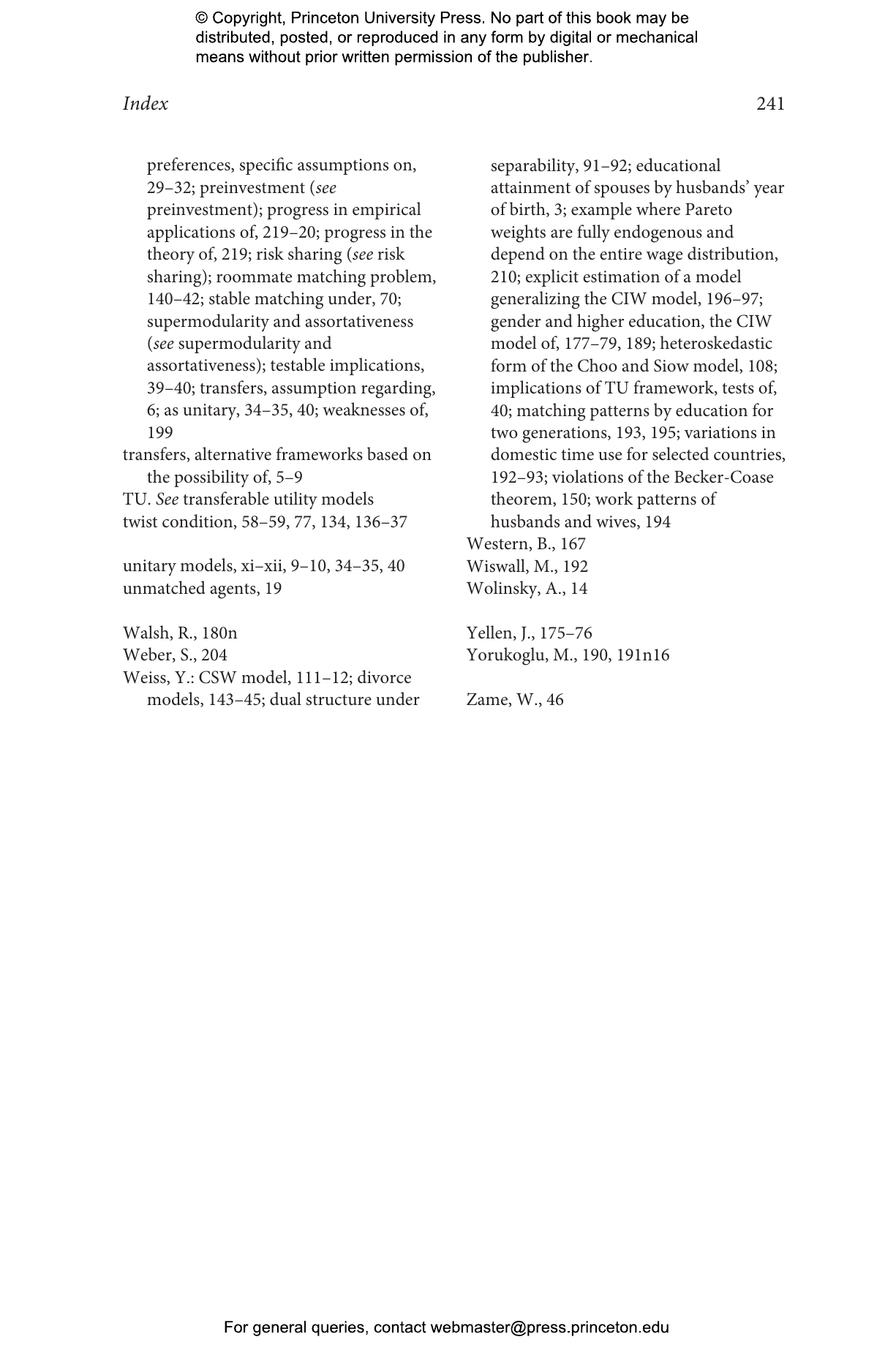Over the past few decades, matching models, which use mathematical frameworks to analyze allocation mechanisms for heterogeneous products and individuals, have attracted renewed attention in both theoretical and applied economics. These models have been used in many contexts, from labor markets to organ donations, but recent work has tended to focus on “nontransferable” cases rather than matching models with transfers. In this important book, Pierre-André Chiappori fills a gap in the literature by presenting a clear and elegant overview of matching with transfers and provides a set of tools that enable the analysis of matching patterns in equilibrium, as well as a series of extensions. He then applies these tools to the field of family economics and shows how analysis of matching patterns and of the incentives thus generated can contribute to our understanding of long-term economic trends, including inequality and the demand for higher education.
Pierre-André Chiappori is the E. Rowan and Barbara Steinschneider Professor of Economics at Columbia University and a Distinguished Fellow at the Becker Friedman Institute for Research in Economics at the University of Chicago. He is the author or coauthor of several books, including Economics of the Family.
"With Matching with Transfers, Chiaporri provides a valuable contribution and summary of the matching and family economics literature."—Scott Alan Carson, Journal of Economic and Social Thought
"This book uses matching theory with transferable utility to analyse the economics of family and marriage patterns. It provides a useful survey of the authors’ impressive contribution to this literature."—Roberto Bonilla, Journal of Economics
"A unique blend of theory with applications—many exposed here in book form for the first time. Chiappori's text is a valuable contribution to the matching literature, written by one of the subject’s leading authorities."—Robert J. McCann, University of Toronto
"This book gives a concise and insightful discussion of the economics of matching when potential partners can make transfers to each other. It synthesizes and extends a vibrant new literature on the economics of marriage and the household that Chiappori pioneered. It is a must-read for any serious student of the economics of the family."—James J. Heckman, University of Chicago, winner of the Nobel Prize in economics
"This incredibly important book defines the state of knowledge for matching models with transfers, and provides a set of tools for analyzing matching patterns in equilibrium. This is a growing area in empirical economics with a number of applications, including marriage and labor markets. To my knowledge, no other book covers this material. This is an excellent and extremely useful book."—Costas Meghir, Yale University
"This encompassing overview of marital matching models will provide a very useful starting point for readers who want to understand the state of the art of research on the subject. Very instructively written, with much emphasis on intuition, it naturally links deep theoretical insights with observed empirical relationships. By focusing on matching issues in the family context, it offers a welcome addition to our understanding of family economics."—Laurens Cherchye, Katholieke Universiteit Leuven
